Choosing the right portable water heater for your hot tub or pool is essential to ensure a comfortable and enjoyable experience. With various factors to consider, such as size, energy source, temperature range, and installation requirements, it can be overwhelming to make the right choice. In this article, we will explore the key factors to consider, different types of portable water heaters available, essential features to look for, and installation and maintenance tips. By the end, you will have a better understanding of how to choose the perfect portable water heater for your hot tub or pool.
Key Takeaways
- Consider the size and capacity of the portable water heater to ensure it can meet the demands of your hot tub or pool.
- Choose an energy source that is convenient and cost-effective for your needs, such as electric, propane, or solar.
- Check the temperature range of the water heater to ensure it can provide the desired level of warmth for your hot tub or pool.
- Take into account the installation requirements, including space availability and any necessary plumbing or electrical connections.
- Look for features like adjustable thermostat, digital display, and safety features to enhance the usability and safety of the portable water heater.
Factors to Consider
Size and Capacity
When choosing a portable water heater for your hot tub or pool, one of the most important factors to consider is the size and capacity. The size of the water heater should be suitable for the volume of water in your hot tub or pool. If the water heater is too small, it may take a long time to heat up the water, and if it is too large, it may consume more energy than necessary. Additionally, consider the capacity of the water heater in terms of how much water it can heat at once. This is especially important if you have a large hot tub or pool that requires a significant amount of water to be heated.
Energy Source
When choosing a portable water heater, one of the important factors to consider is the energy source . The energy source determines how the water heater will be powered and can have an impact on its efficiency and cost. There are three main types of energy sources for portable water heaters:
-
Electric Water Heaters: These water heaters are powered by electricity and are convenient to use as they can be plugged into a standard power outlet. They are generally more energy-efficient but may have limitations in terms of heating capacity.
-
Propane Water Heaters: Propane water heaters use propane gas as their energy source. They are often used in outdoor settings where electricity may not be readily available. Propane water heaters provide quick and efficient heating but require a propane tank for fuel.
-
Solar Water Heaters: Solar water heaters utilize the energy from the sun to heat the water. They are environmentally friendly and can be cost-effective in the long run, but their effectiveness may depend on the availability of sunlight.
When choosing an energy source for your portable water heater, consider factors such as availability, convenience, efficiency, and cost.
Temperature Range
Temperature Range
When selecting a portable water heater for your hot tub or pool, it is important to consider the temperature range that the heater can achieve. Different heaters have different temperature capabilities , so it is crucial to choose one that meets your specific needs. Some heaters can only reach a certain temperature, while others have a wider range. Make sure to check the temperature range of the heater before making a decision.
Installation Requirements
When installing a portable water heater for your hot tub or pool, there are a few important requirements to consider:
-
Location : Choose a suitable location for the water heater that is close to the hot tub or pool and has access to a power source or fuel.
-
Ventilation : Ensure proper ventilation to prevent the buildup of fumes or gases. This is especially important for propane water heaters.
-
Water Supply : Make sure there is a reliable water supply available for the water heater to function properly.
-
Electrical Connection : If using an electric water heater, ensure that there is a proper electrical connection available.
-
Safety Measures : Follow all safety guidelines provided by the manufacturer to ensure safe installation and operation of the water heater.
Remember to consult the manufacturer's instructions for specific installation requirements for your chosen portable water heater.
Types of Portable Water Heaters
Electric Water Heaters
When considering an electric water heater for your hot tub or pool, there are a few key factors to keep in mind. First, you'll want to consider the power output of the heater. Higher wattage heaters will heat the water more quickly, but they may also consume more energy. Efficiency is an important factor to consider, as it can impact both the cost of operation and the environmental impact of the heater.
Another important consideration is the size and capacity of the electric water heater. You'll want to choose a heater that is capable of heating the volume of water in your hot tub or pool. It's important to note that larger heaters may require a higher voltage power source, so be sure to check the electrical requirements before making a purchase.
In terms of installation, electric water heaters are generally easier to install compared to other types of portable water heaters. They typically require a standard electrical outlet and do not require any additional ventilation or gas connections.
When it comes to maintenance, electric water heaters are relatively low maintenance. Regularly checking and cleaning the heating elements can help ensure optimal performance and longevity of the heater.
Overall, electric water heaters are a convenient and efficient option for heating your hot tub or pool. With their ease of installation and low maintenance requirements, they are a popular choice among homeowners.
Propane Water Heaters
Propane water heaters are a popular choice for heating hot tubs and pools. They are known for their efficiency and ability to heat water quickly. Propane water heaters use propane gas as their energy source, which allows them to heat water at a much faster rate than electric water heaters. This makes them ideal for those who want to enjoy their hot tub or pool without having to wait for the water to heat up. Additionally, propane water heaters are often more compact and portable than other types of water heaters, making them easy to transport and install.
Solar Water Heaters
Solar water heaters are a popular choice for those looking for an eco-friendly and cost-effective way to heat their hot tub or pool. These heaters utilize the power of the sun to heat the water, reducing the need for electricity or gas. They are easy to install and require minimal maintenance. Additionally, solar water heaters can be a great long-term investment as they can significantly reduce energy costs over time.
Features to Look For
Adjustable Thermostat
An adjustable thermostat is an essential feature to look for in a portable water heater. It allows you to easily control and adjust the temperature of the water to suit your preferences. With an adjustable thermostat, you can ensure that your hot tub or pool water is always at the perfect temperature for a relaxing and enjoyable experience.
Digital Display
A digital display is an important feature to look for in a portable water heater. It provides easy-to-read information about the temperature settings and other relevant data . With a digital display, you can easily monitor and adjust the water temperature to your desired level. This feature is especially useful for maintaining a consistent and comfortable water temperature in your hot tub or pool.
Safety Features
When choosing a portable water heater for your hot tub or pool, it is important to consider the safety features that are included. These features are designed to ensure the safe operation of the water heater and to protect you and your family from any potential hazards. Some of the safety features to look for include:
Installation and Maintenance
Installation Process
Installation Process
Next, connect the water source to the heater using the appropriate hoses and fittings. Remember to carefully follow the manufacturer's instructions to ensure a proper and secure connection. Once the water source is connected, turn on the heater and adjust the temperature to your desired level. It is important to regularly check the heater for any leaks or malfunctions and perform necessary maintenance tasks.
Maintenance Tips
When it comes to maintaining your portable water heater, there are a few key steps you can take to ensure its longevity and optimal performance:
-
Regularly clean the heating element and remove any mineral deposits that may have accumulated. This will help prevent clogs and maintain efficient heating.
-
Check the connections and fittings for any leaks or damage. Tighten or replace as necessary to prevent water leakage.
-
Inspect the thermostat and temperature controls to ensure they are functioning properly. Adjust as needed to maintain the desired water temperature.
-
Keep the surrounding area clean and free from debris to prevent any potential obstructions or damage to the water heater.
Remember, proper maintenance is essential for the longevity and efficient operation of your portable water heater.
Welcome to the Installation and Maintenance section of Camplux! Whether you're a seasoned DIY enthusiast or a first-time user, we've got you covered. Our top-rated tankless water heaters are designed to provide hot water in literally seconds, making them perfect for any adventure. With our portable shower , you can take on nature and stay refreshed wherever you go. Visit Camplux.com today to explore our wide range of tankless water heaters and find the perfect one for your needs. Don't miss out on the best portable water heater on the market!
Conclusion
In conclusion, choosing the right portable water heater for your hot tub or pool is crucial for ensuring a comfortable and enjoyable experience. By considering factors such as efficiency , capacity , and safety features , you can make an informed decision that meets your specific needs. Remember to also consider the portability and ease of use of the water heater. With the right choice, you can enjoy warm water in your hot tub or pool whenever you want, enhancing your relaxation and enjoyment.
Frequently Asked Questions
1. How do I determine the size and capacity of a portable water heater for my hot tub or pool?
To determine the size and capacity of a portable water heater, you need to consider the volume of water in your hot tub or pool. Measure the length, width, and depth of the water and multiply these measurements together. This will give you the total volume of water in gallons. Choose a water heater that can heat this volume of water effectively.
2. What are the different energy sources available for portable water heaters?
Portable water heaters can be powered by electricity, propane, or solar energy. Electric water heaters are convenient and easy to use, but they require access to electricity. Propane water heaters are portable and can be used anywhere, but they require propane fuel. Solar water heaters are eco-friendly and cost-effective, but they require access to sunlight.
3. What temperature range should a portable water heater have for a hot tub or pool?
The temperature range of a portable water heater should be suitable for the desired hot tub or pool temperature. Most portable water heaters have a temperature range of 80°F to 104°F, which is the recommended range for hot tubs. However, if you have specific temperature requirements, choose a water heater that can meet those needs.
4. What are the installation requirements for a portable water heater?
The installation requirements for a portable water heater depend on the type of heater and the energy source. Electric water heaters require access to an electrical outlet. Propane water heaters require a propane tank and proper ventilation. Solar water heaters require access to sunlight and may need additional plumbing connections. Always follow the manufacturer's instructions for installation.
5. What are the features to look for in a portable water heater?
Some important features to look for in a portable water heater include an adjustable thermostat, a digital display for temperature control, and safety features such as overheating protection and automatic shut-off. These features ensure efficient operation and user safety.
6. How do I install and maintain a portable water heater?
The installation process for a portable water heater varies depending on the type and model. Follow the manufacturer's instructions carefully for proper installation. To maintain a portable water heater, regularly clean the heating element or burner, check for any leaks or damage, and perform routine maintenance tasks as recommended by the manufacturer.

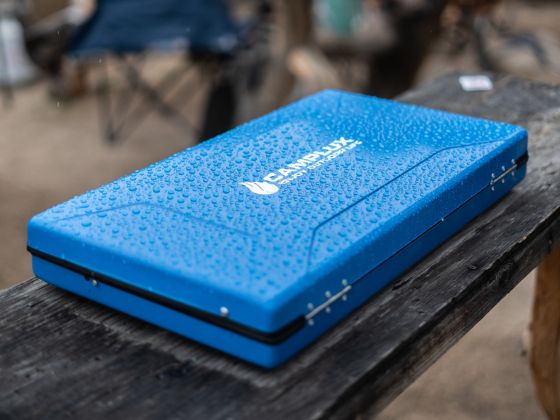
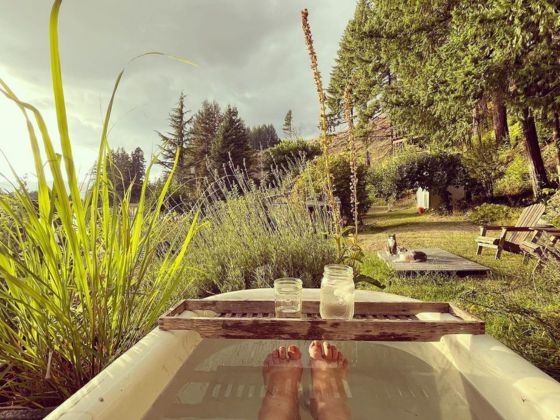
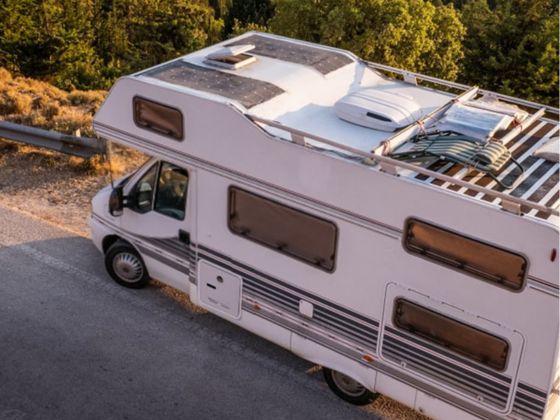
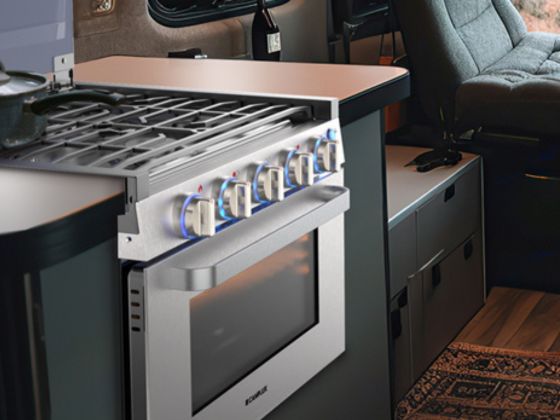
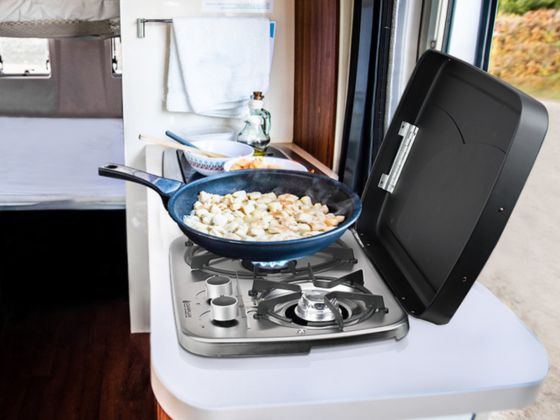
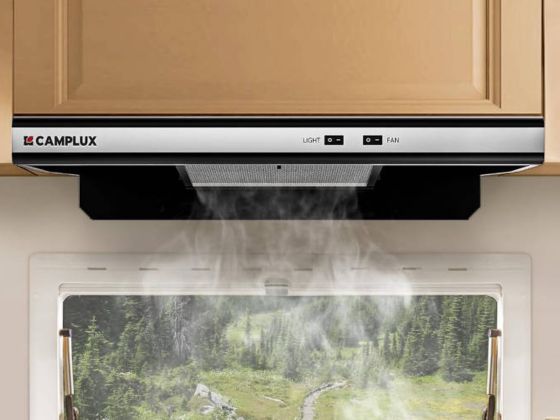
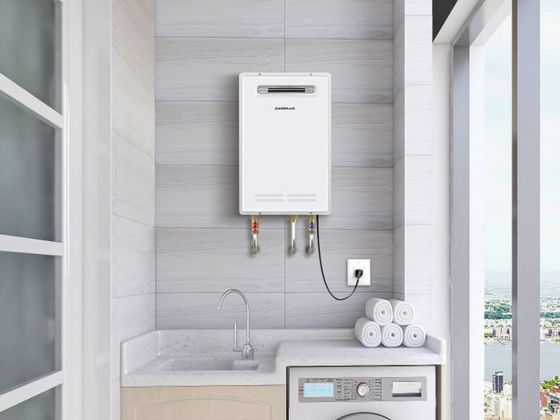
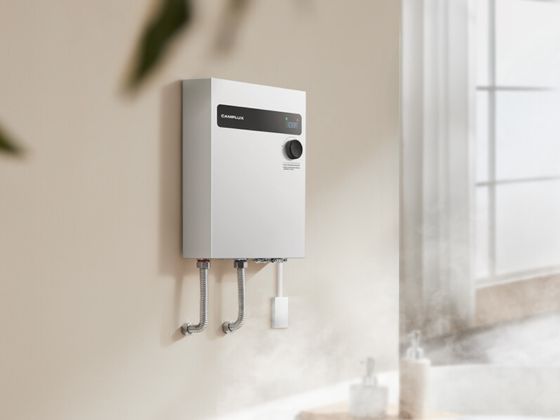
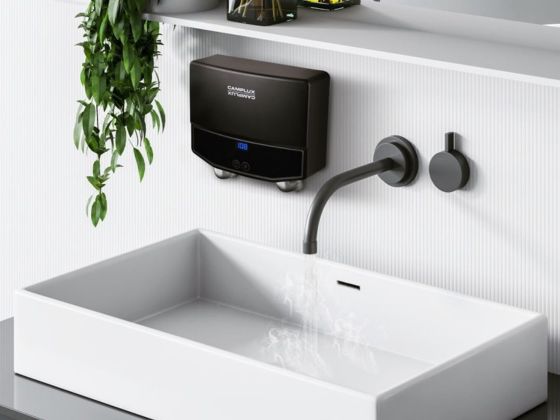


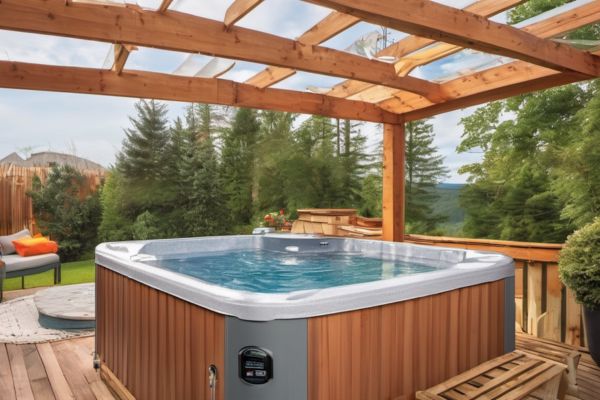

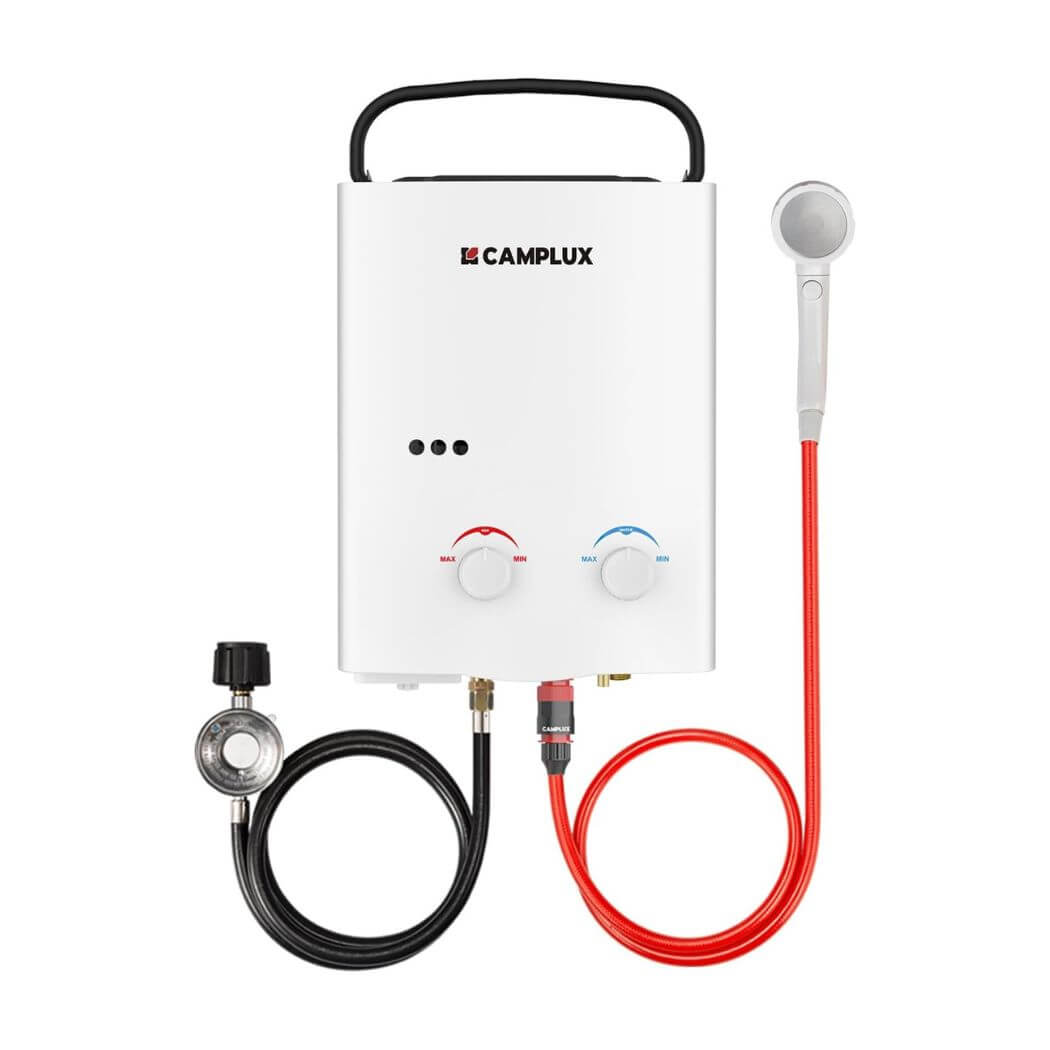
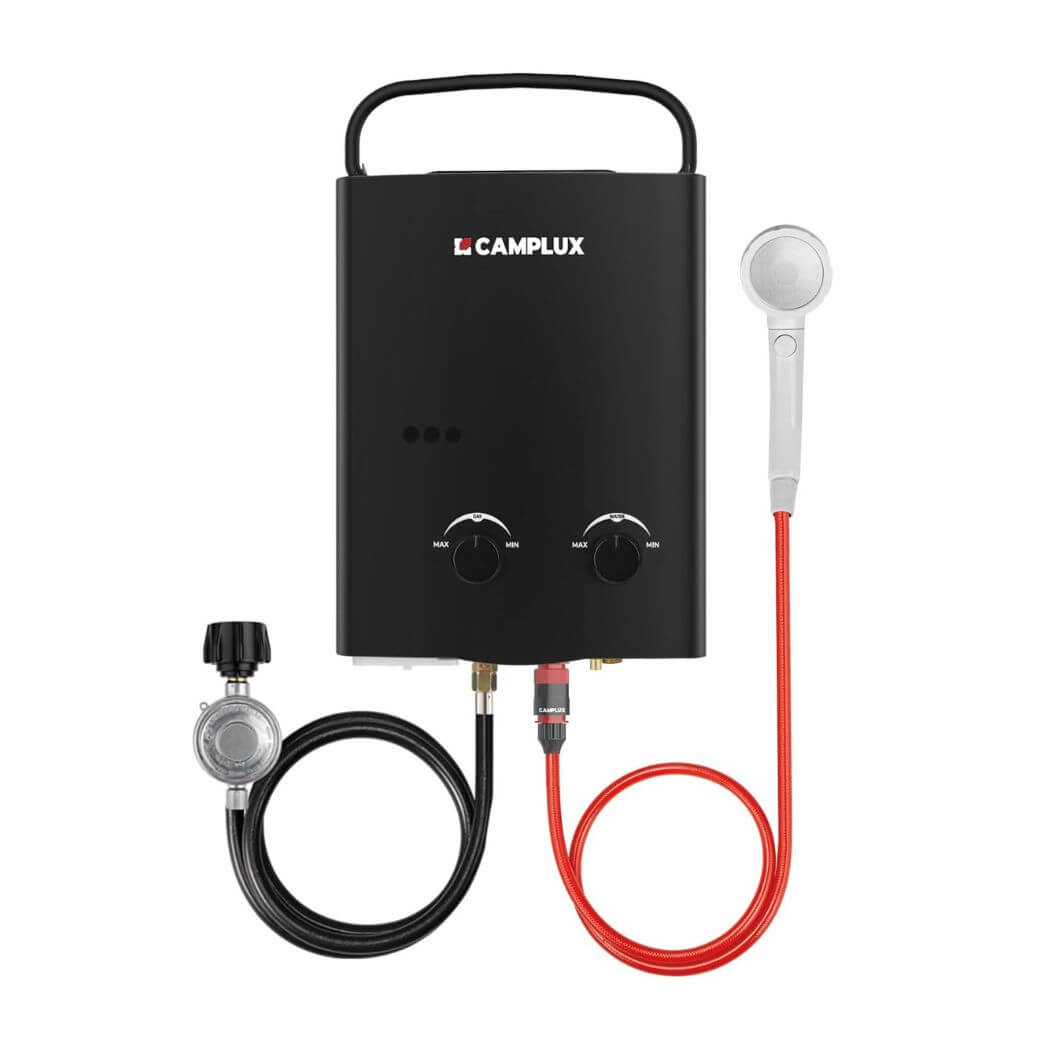
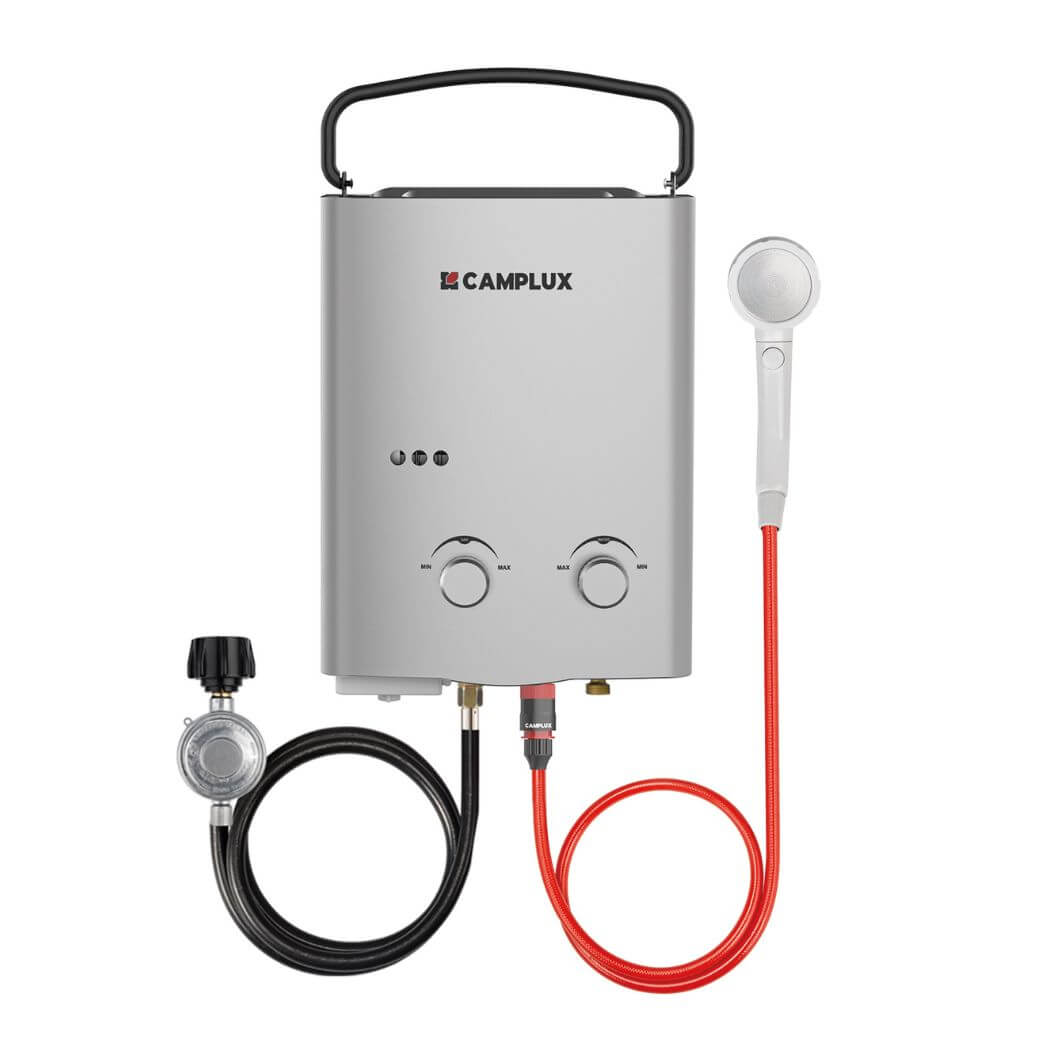
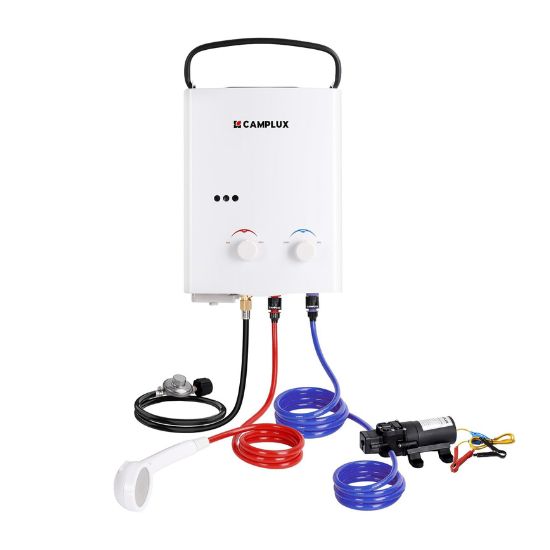
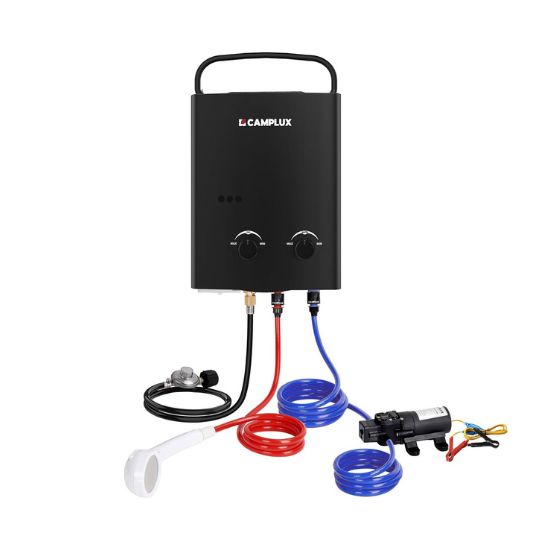
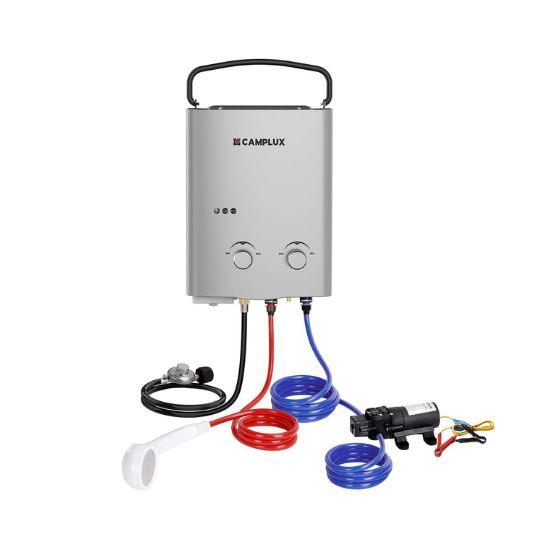
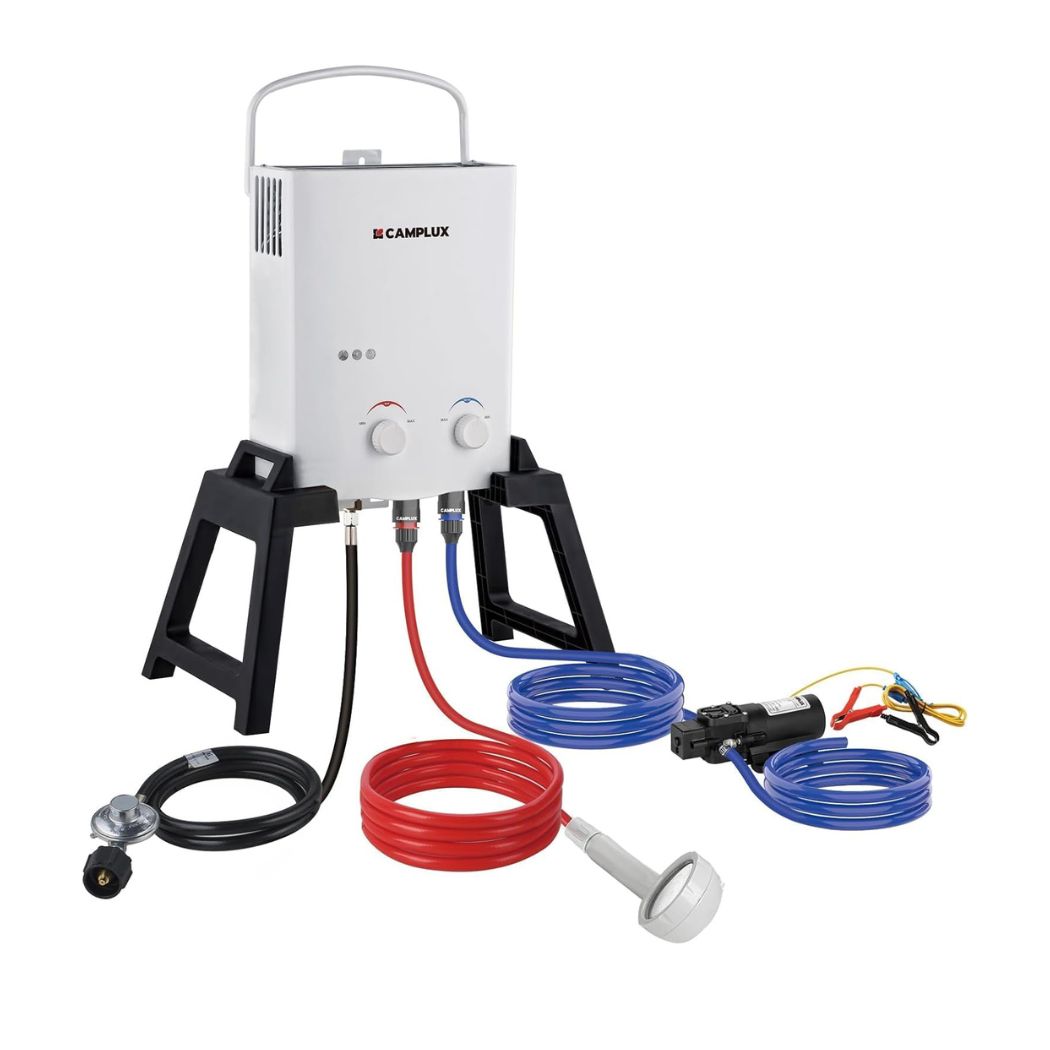
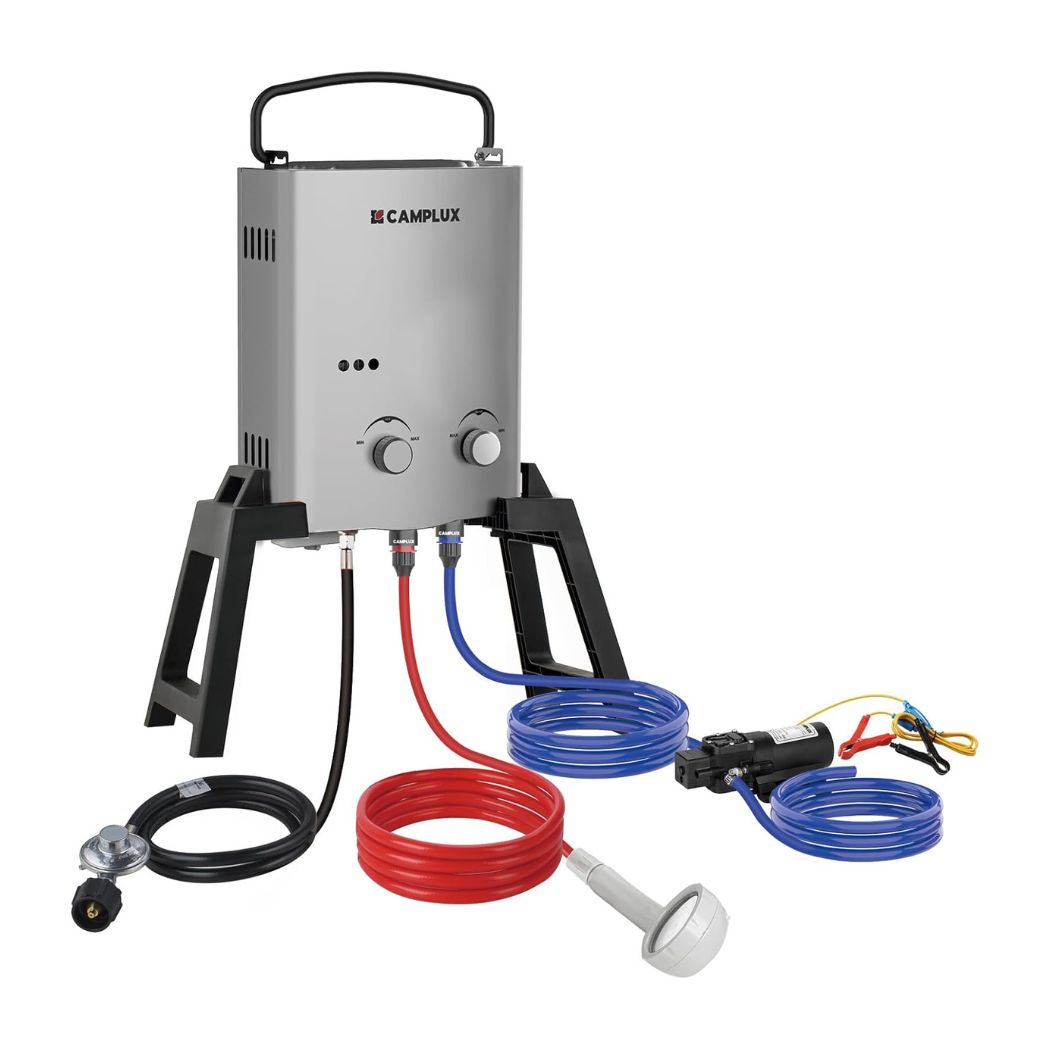
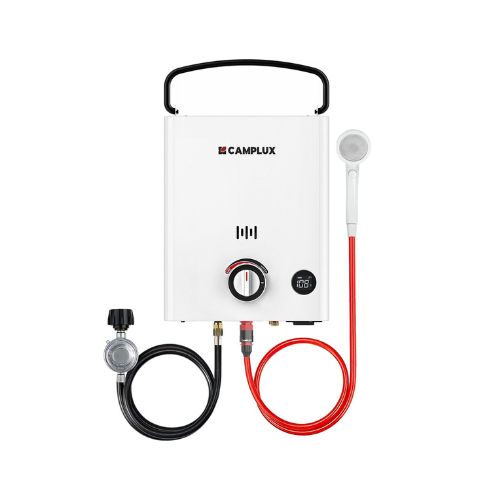
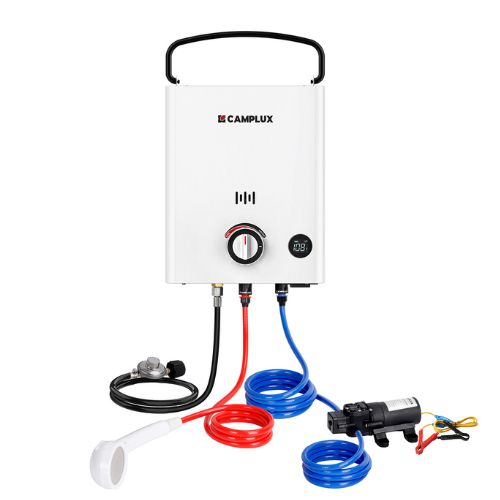
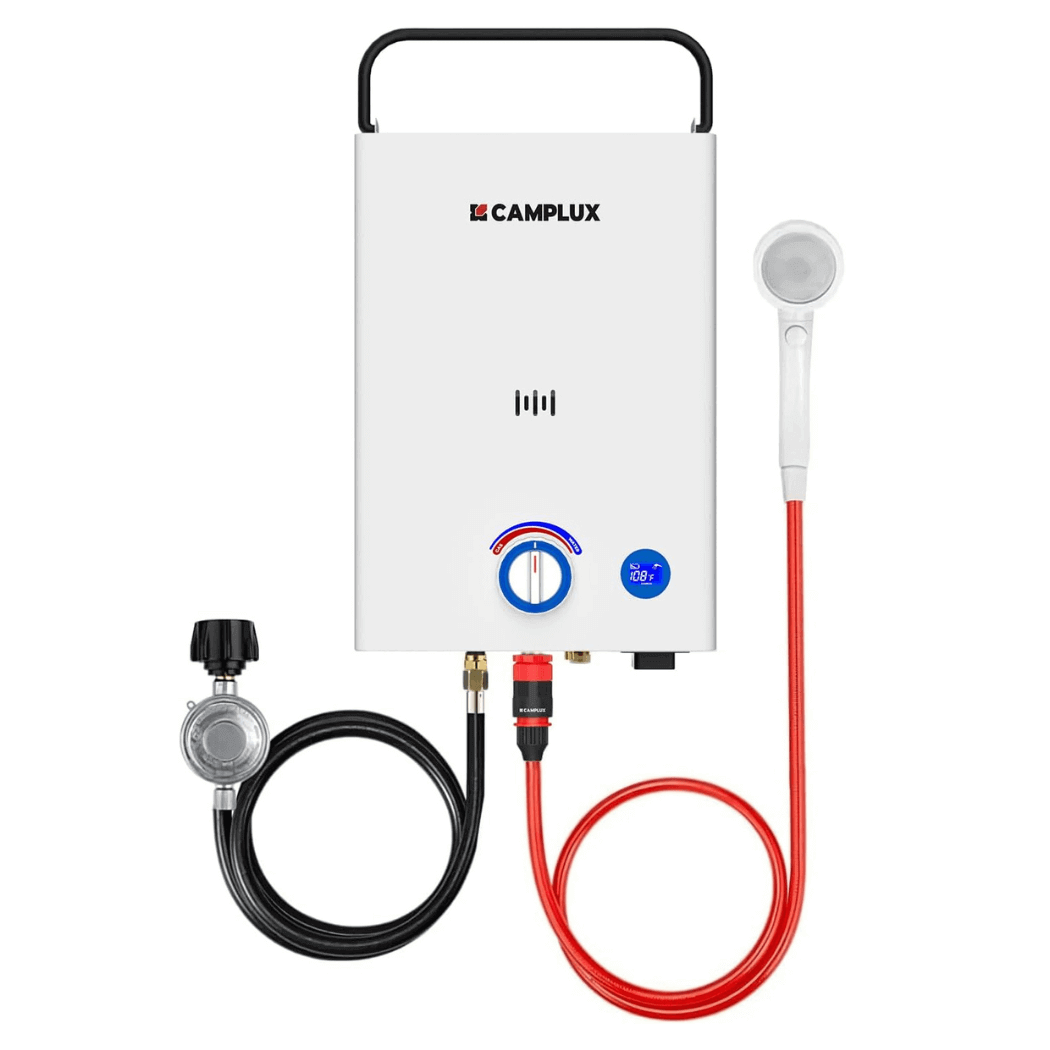
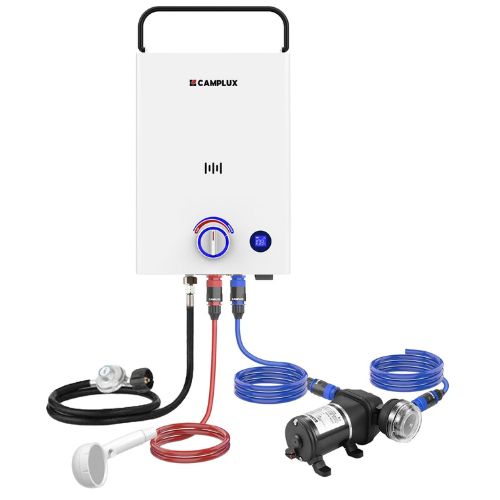
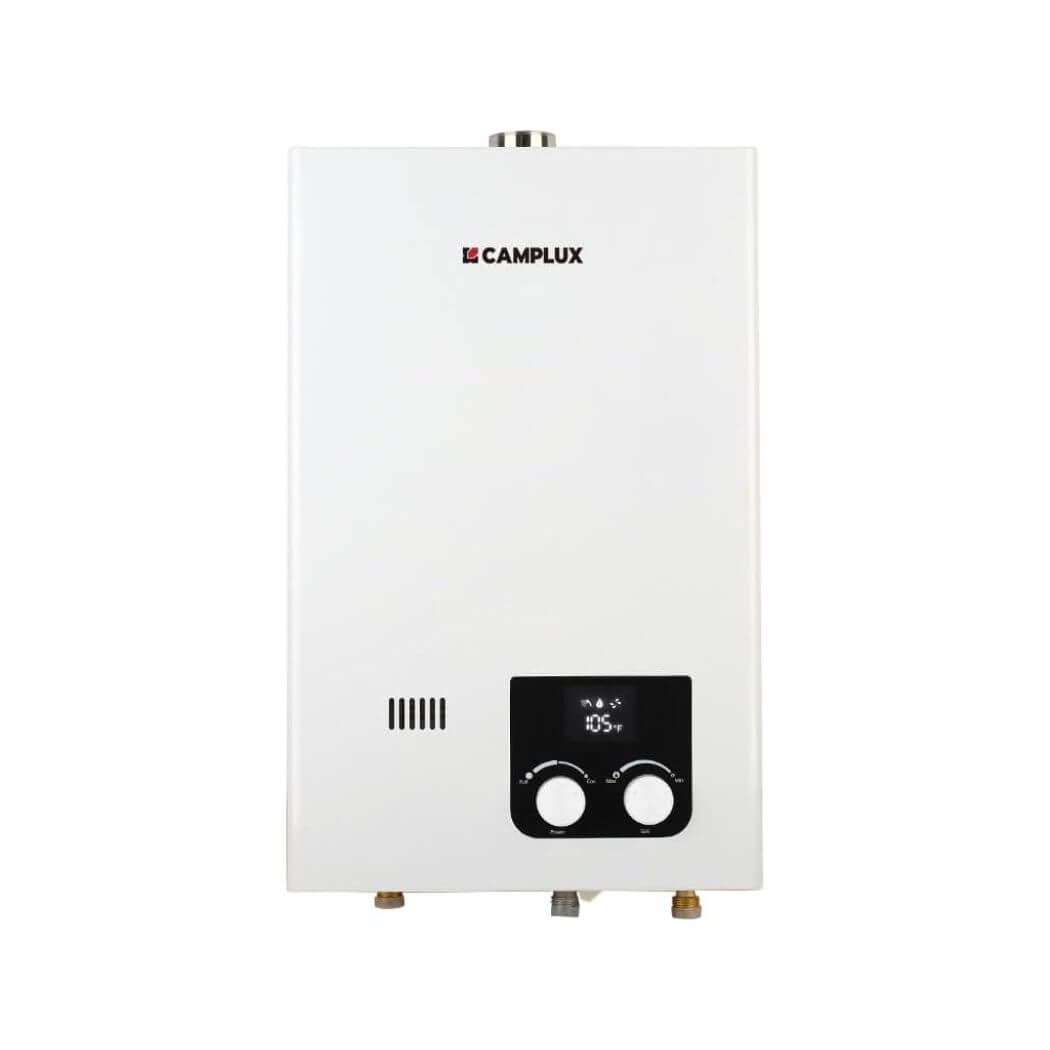
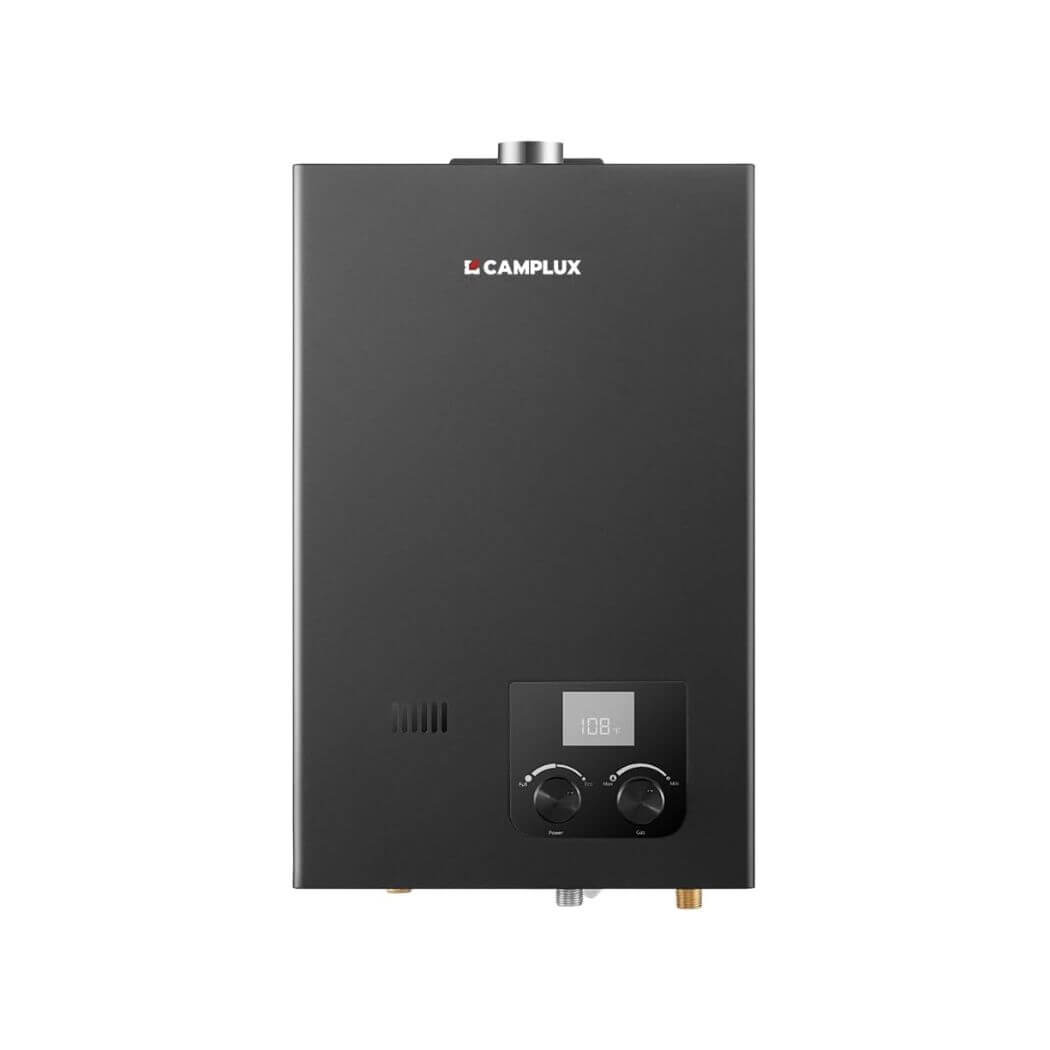
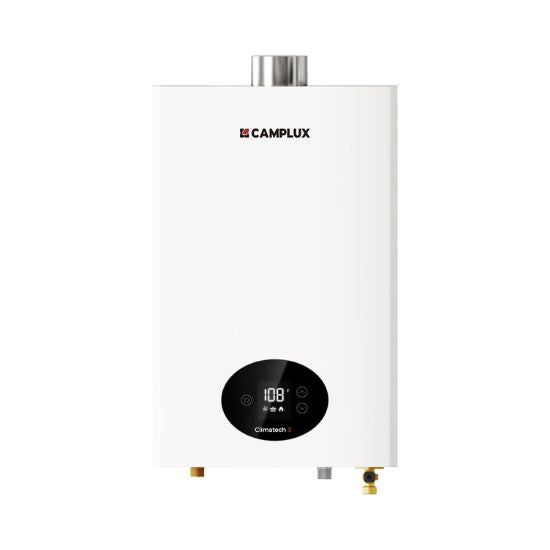
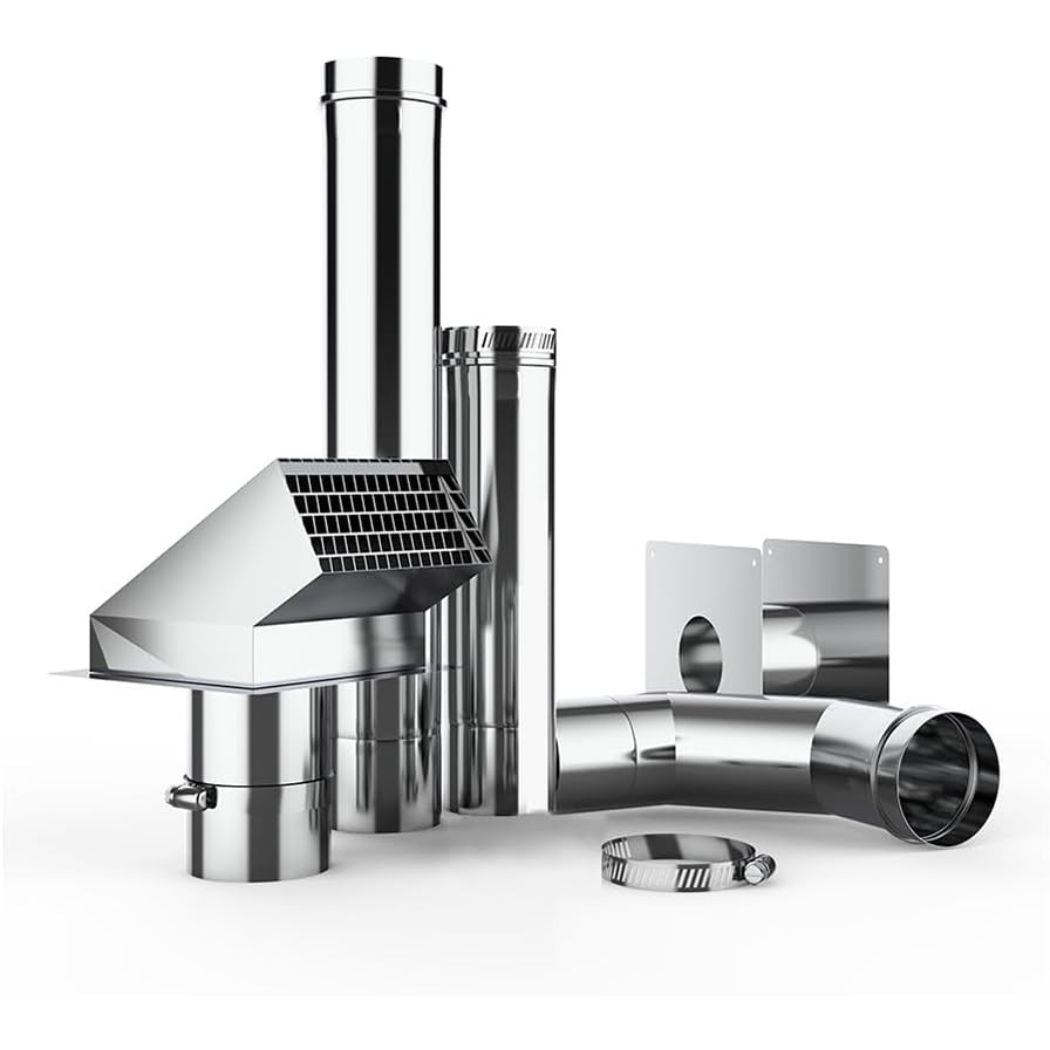
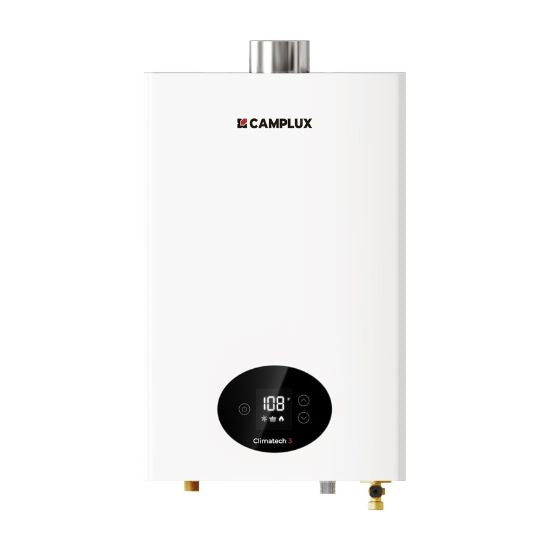
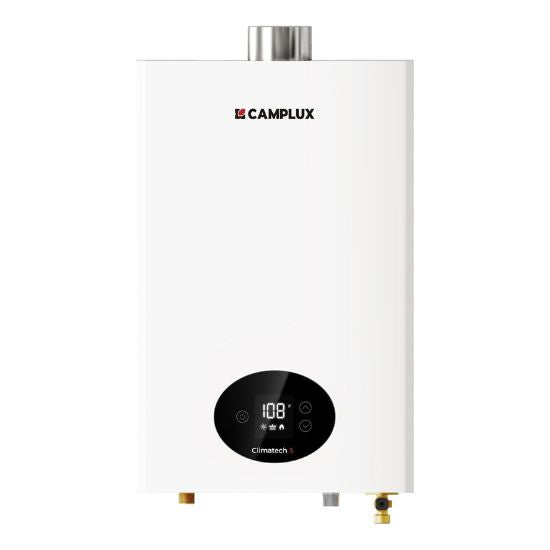
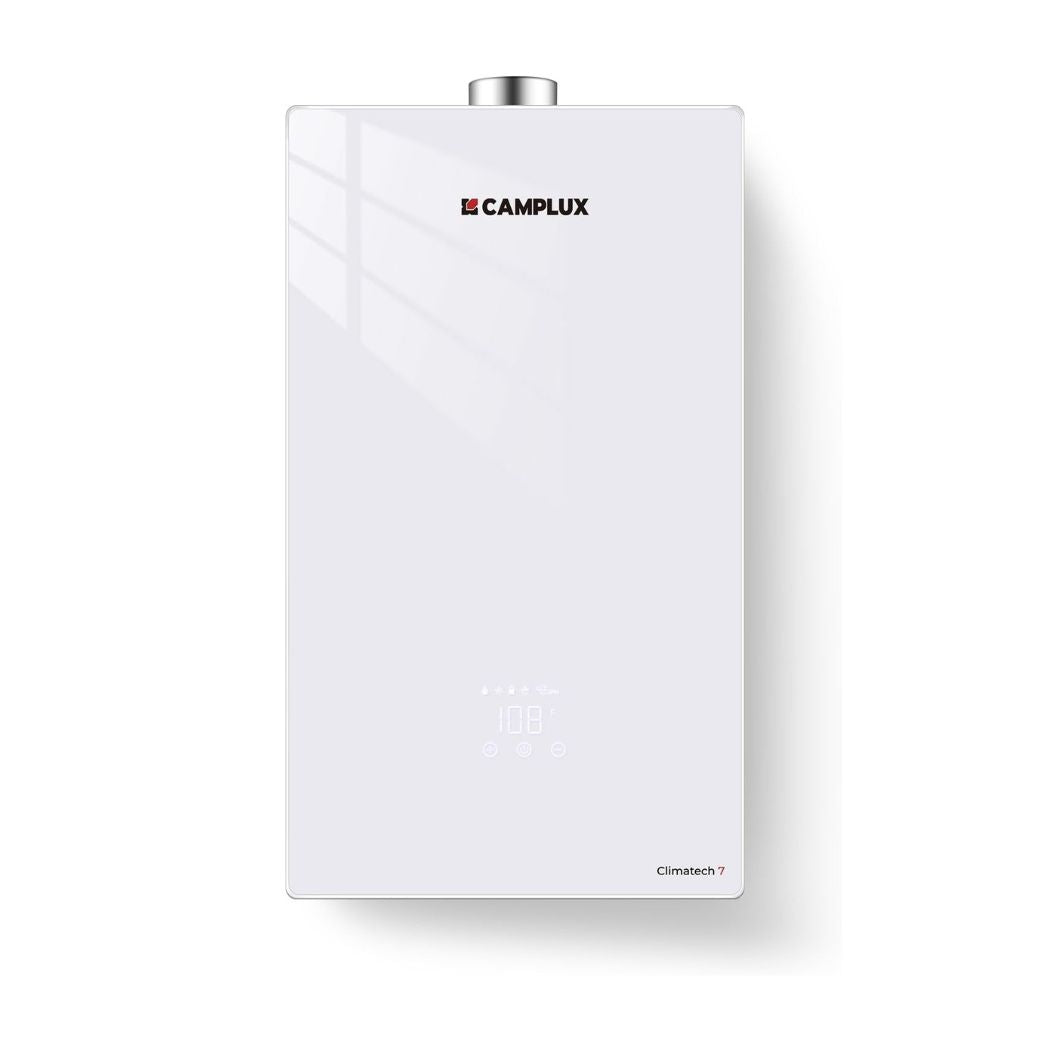
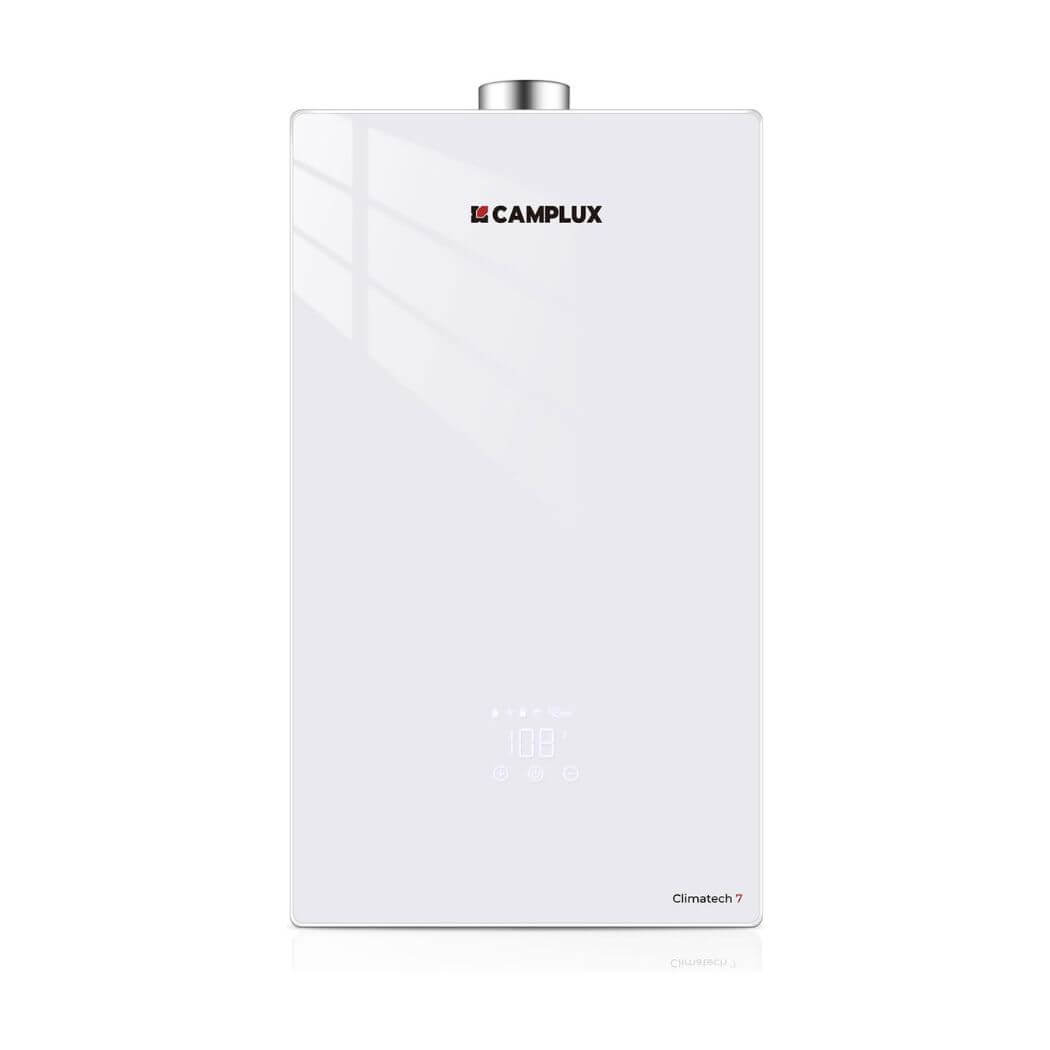
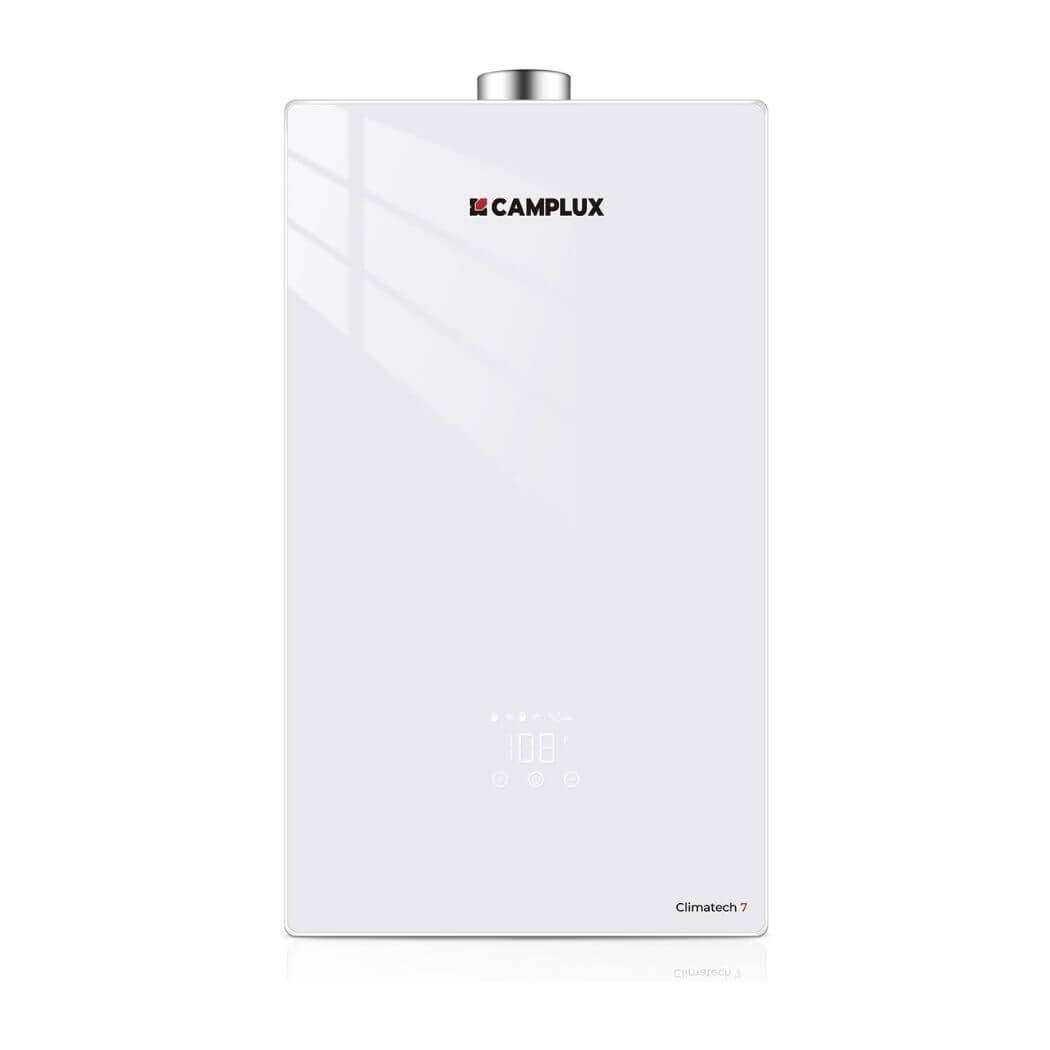
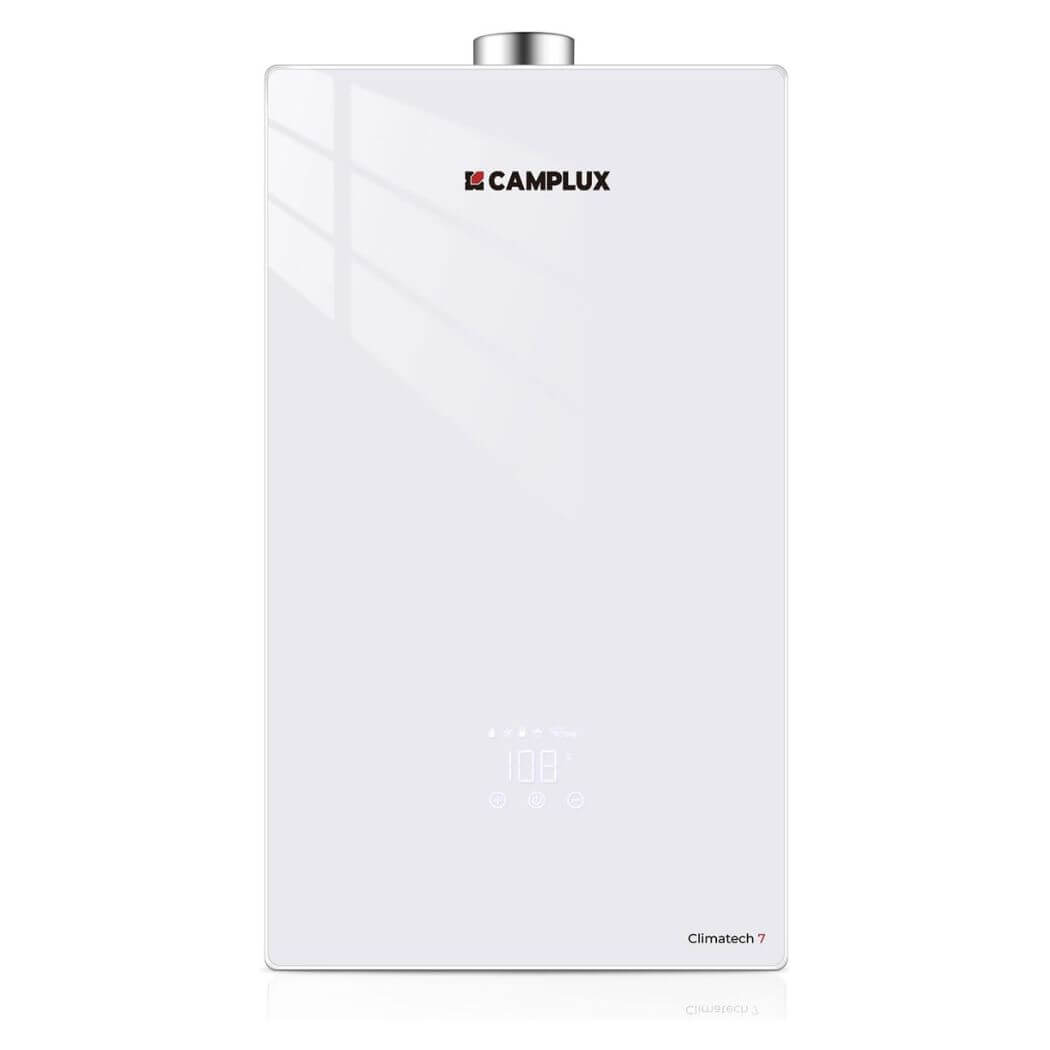
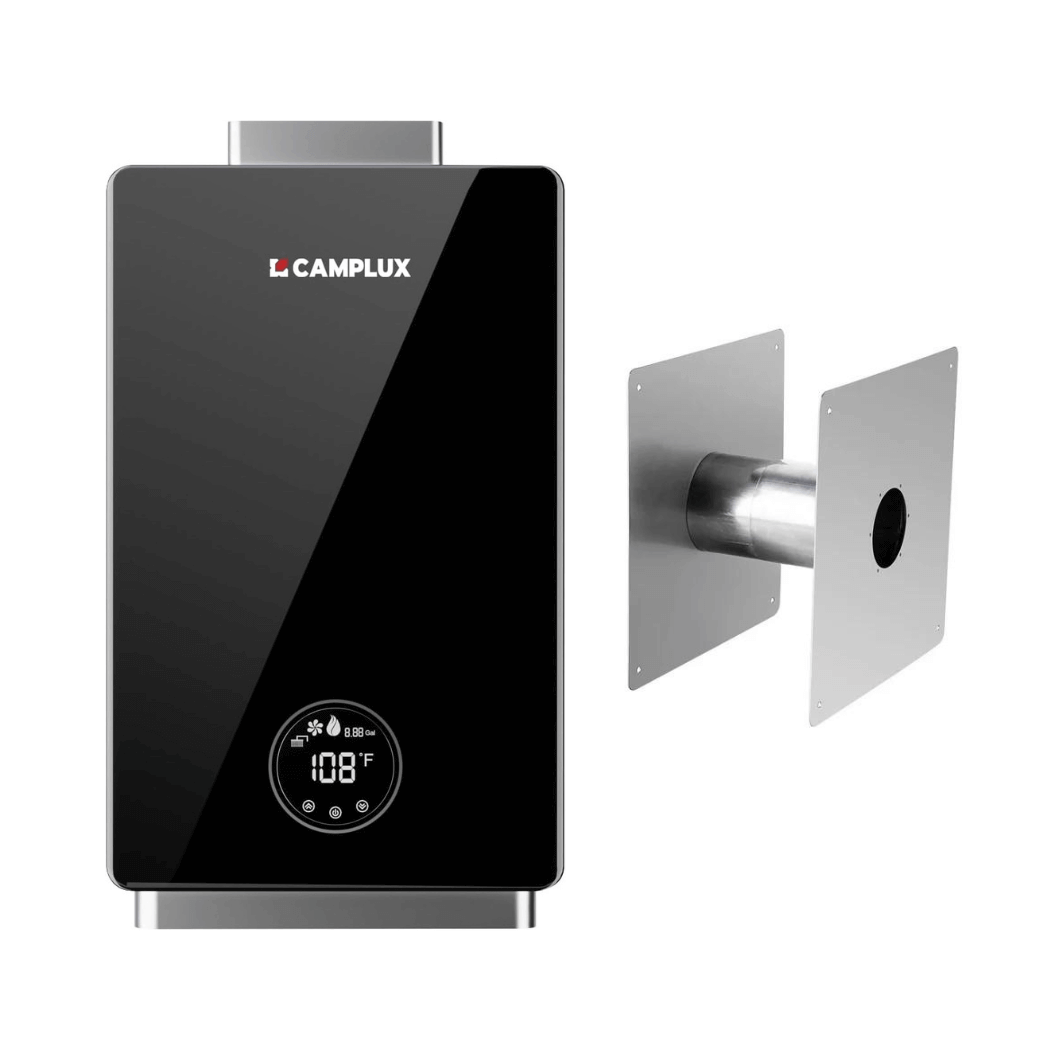
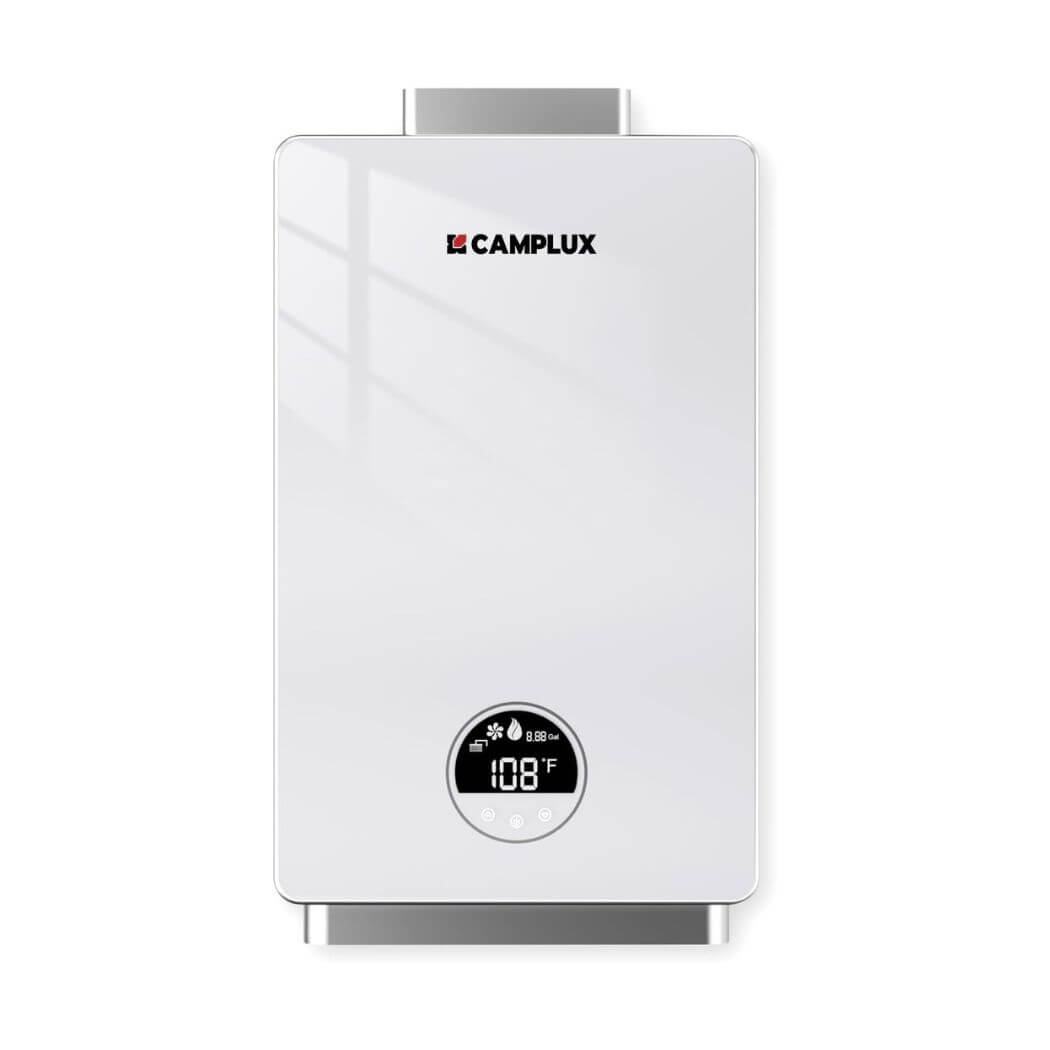
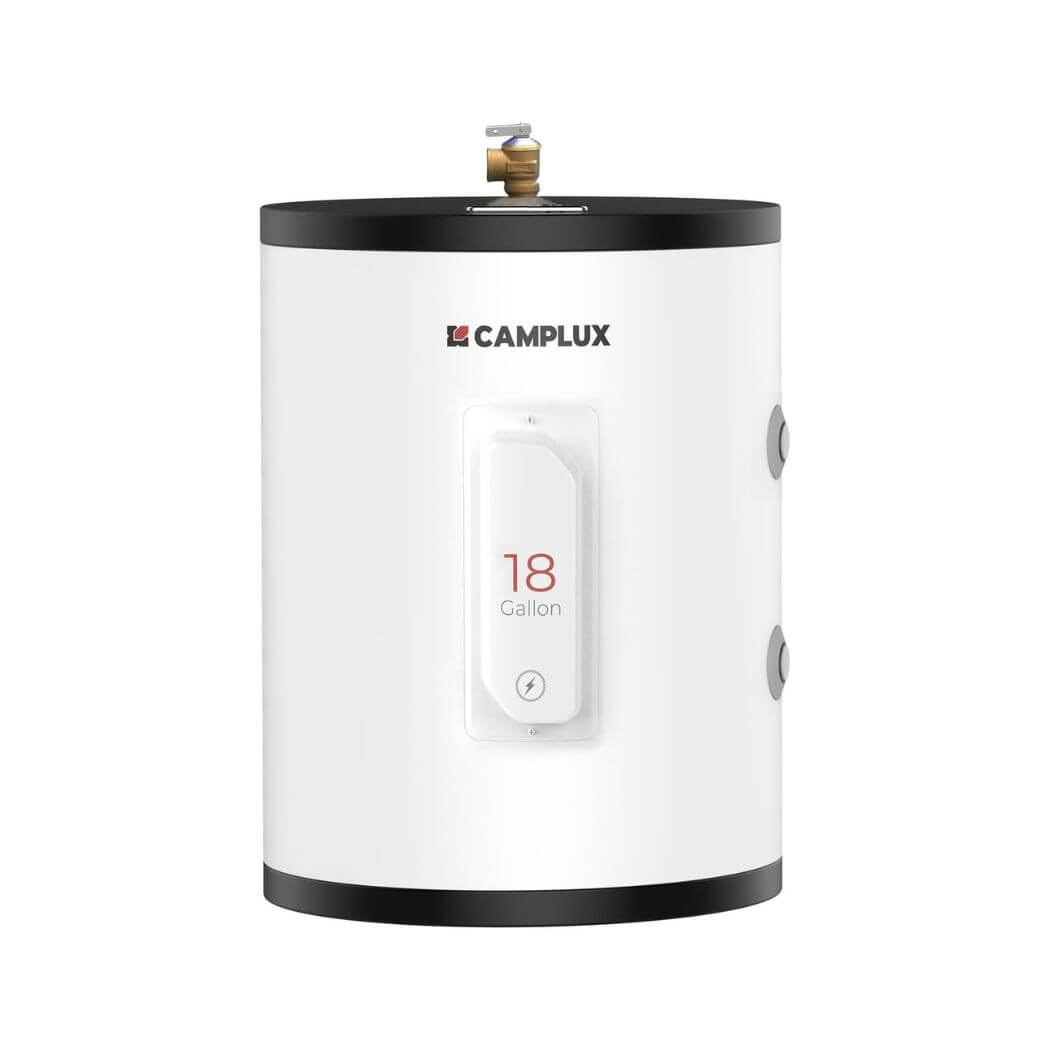
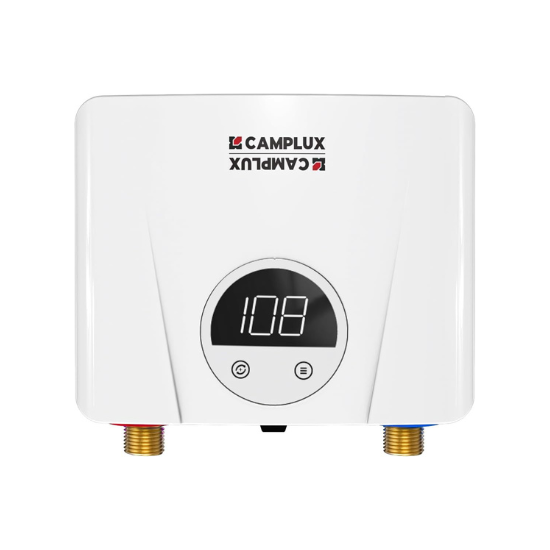
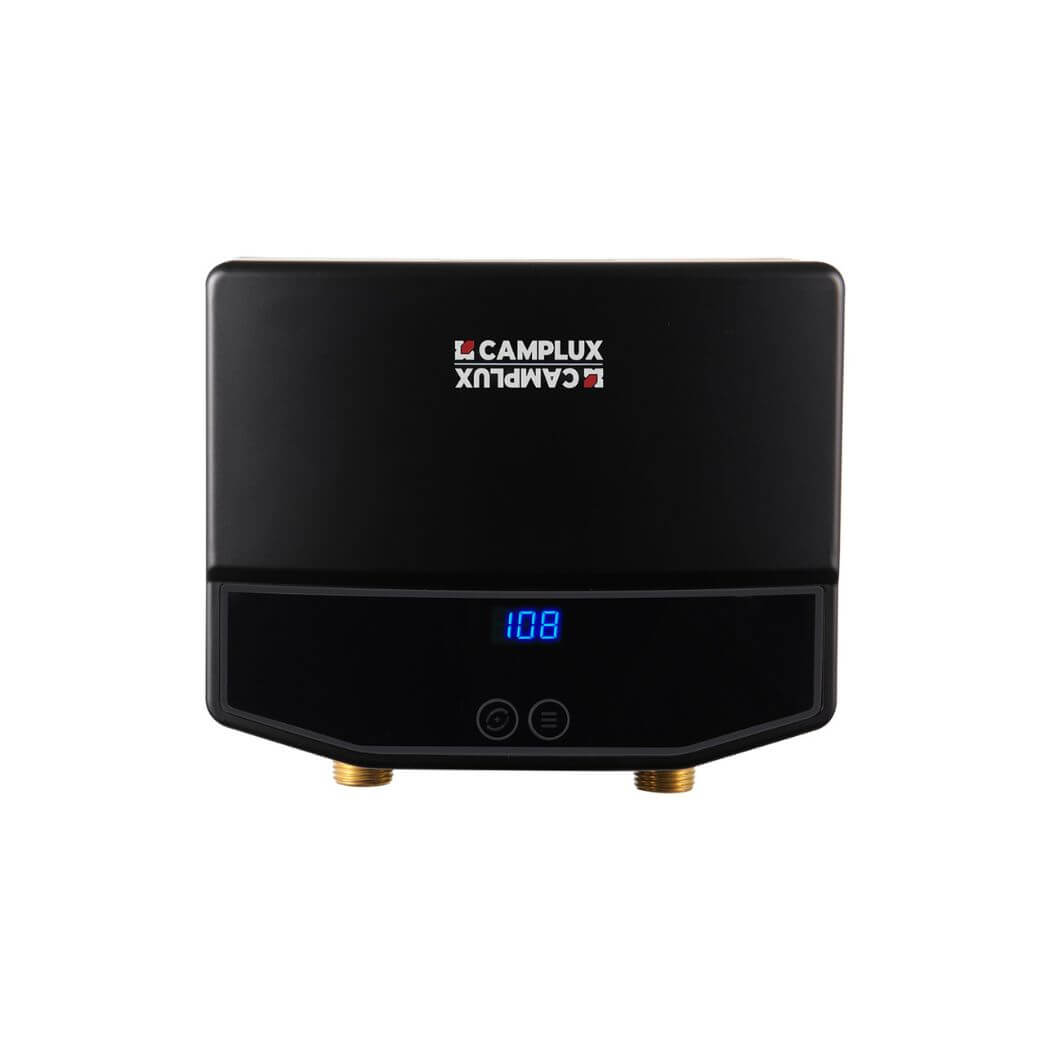
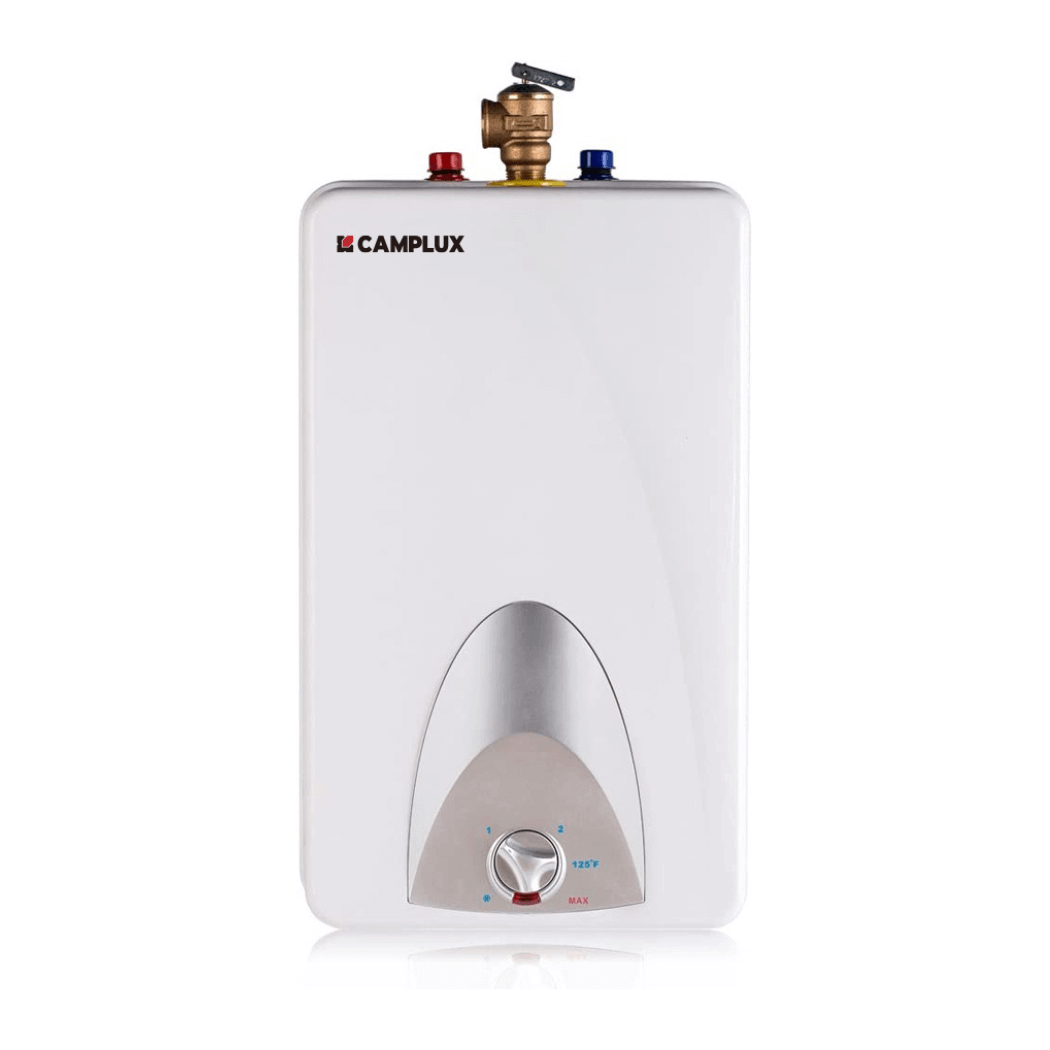
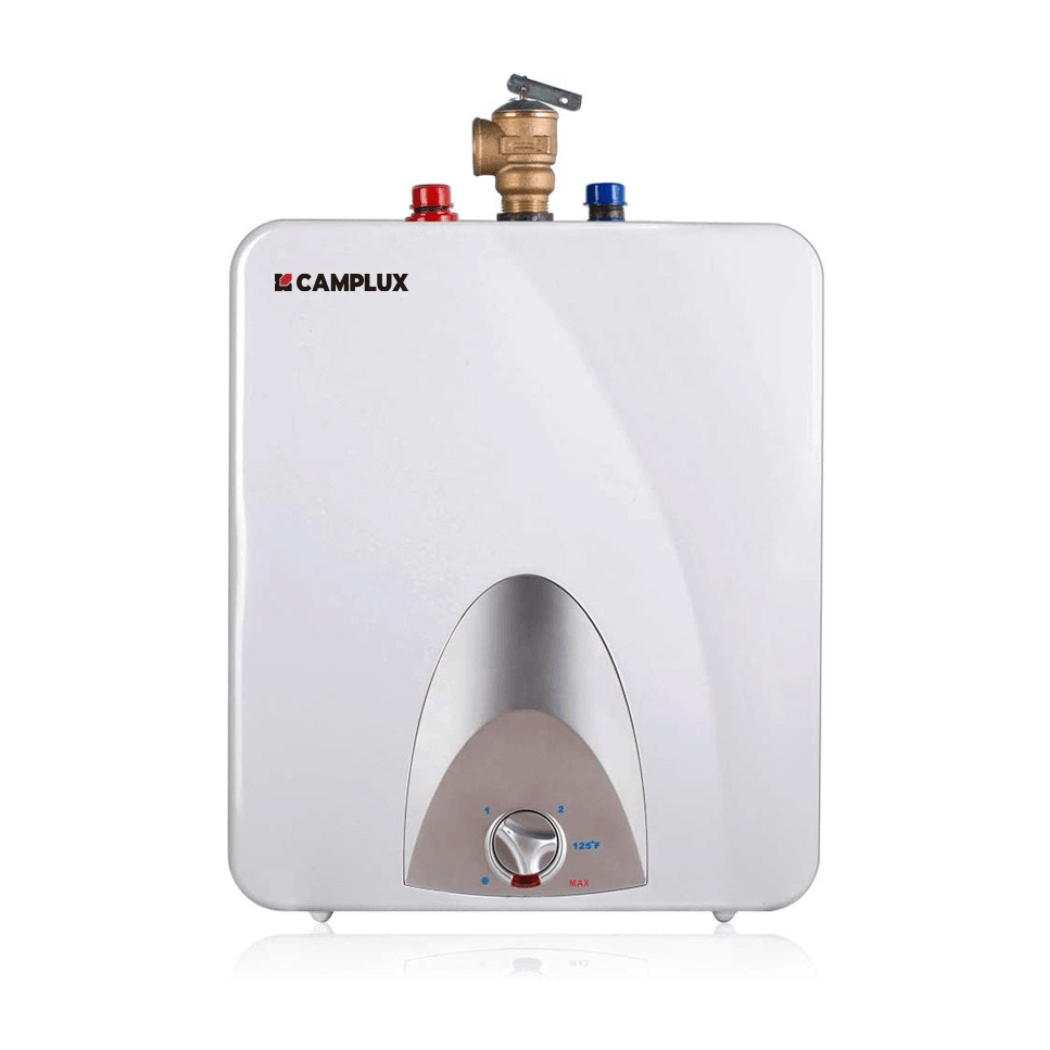
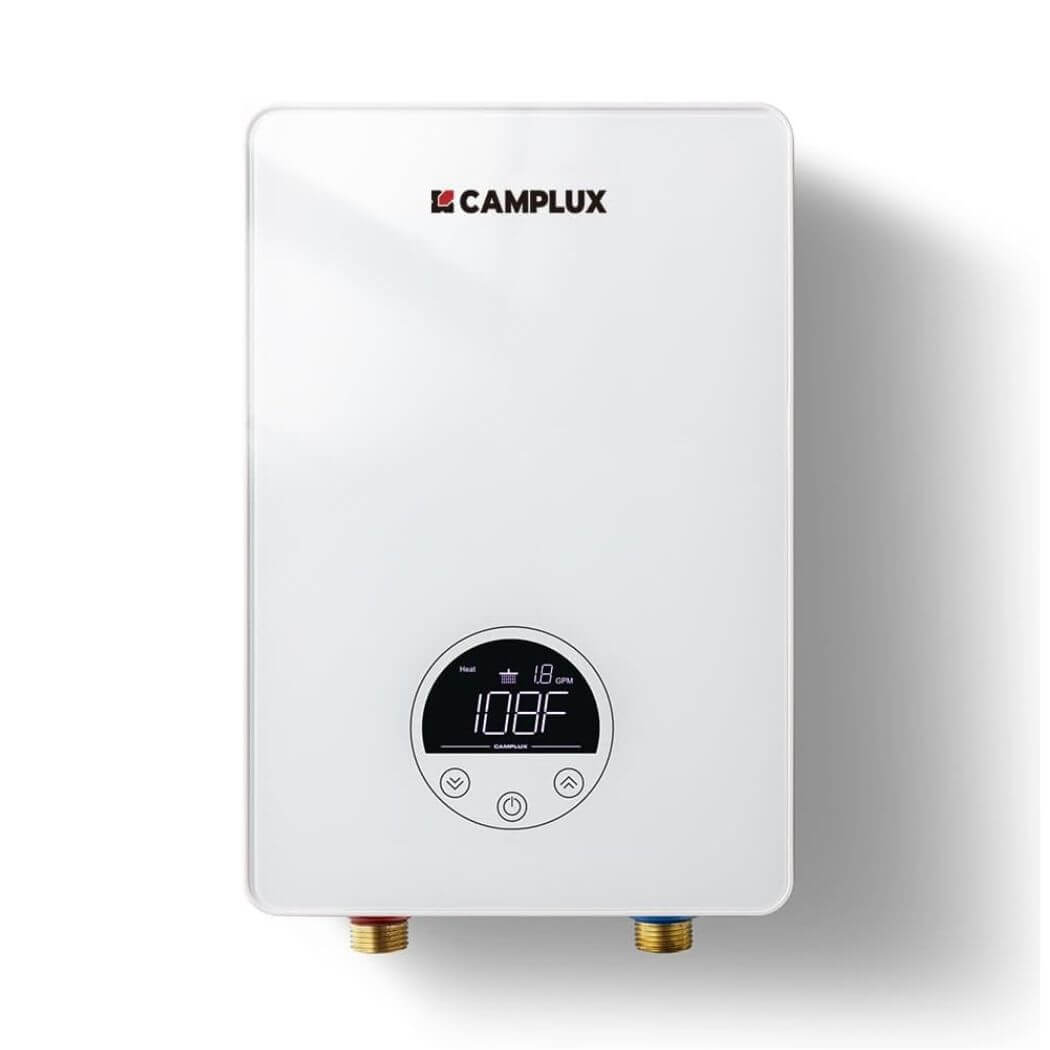
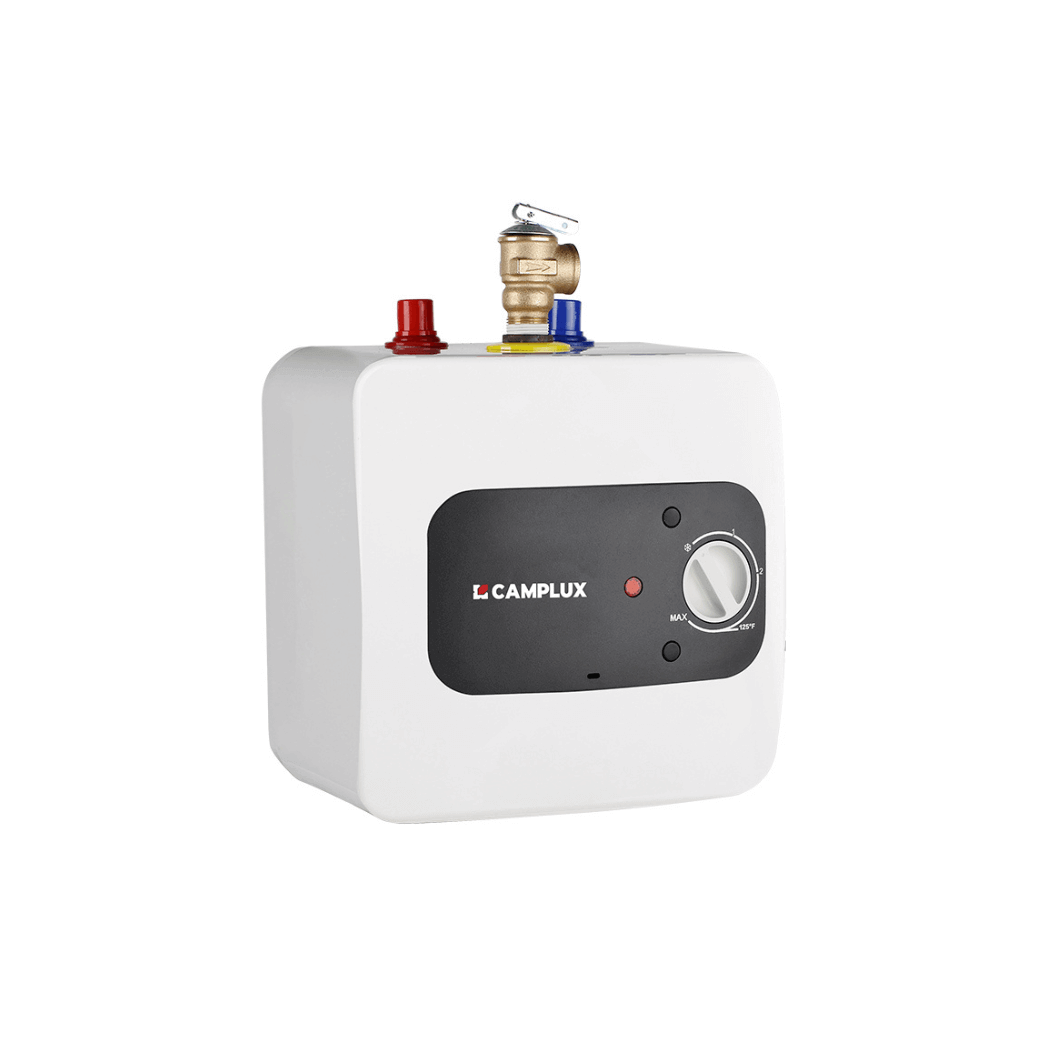
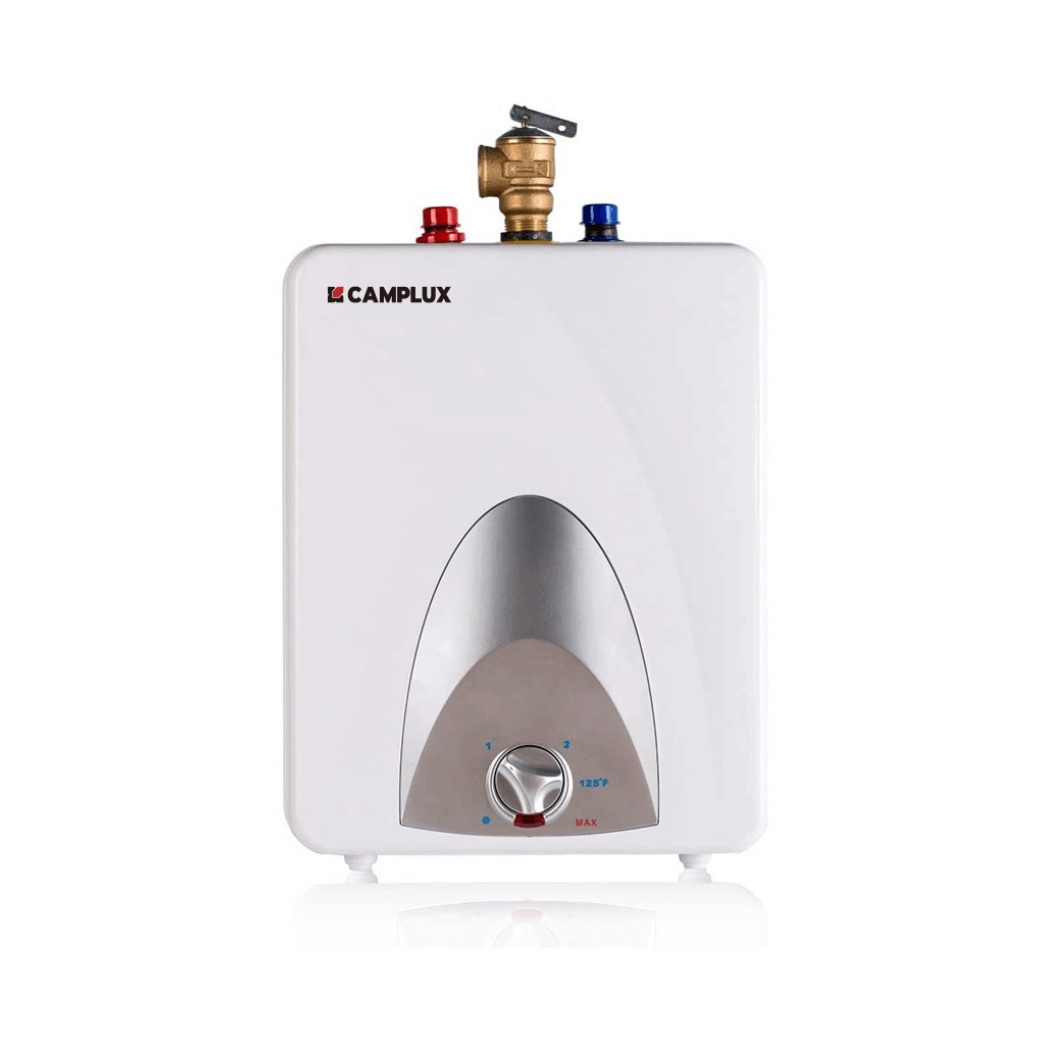
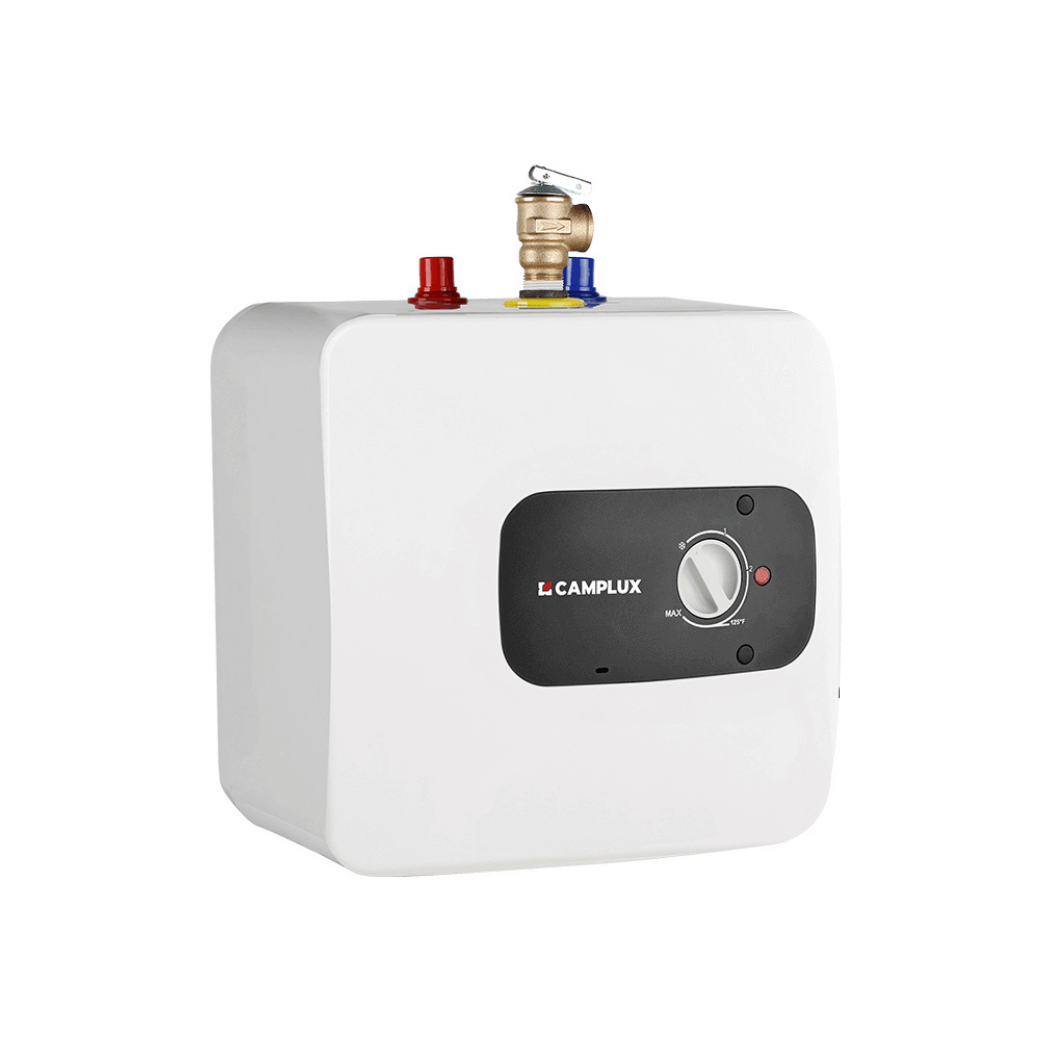
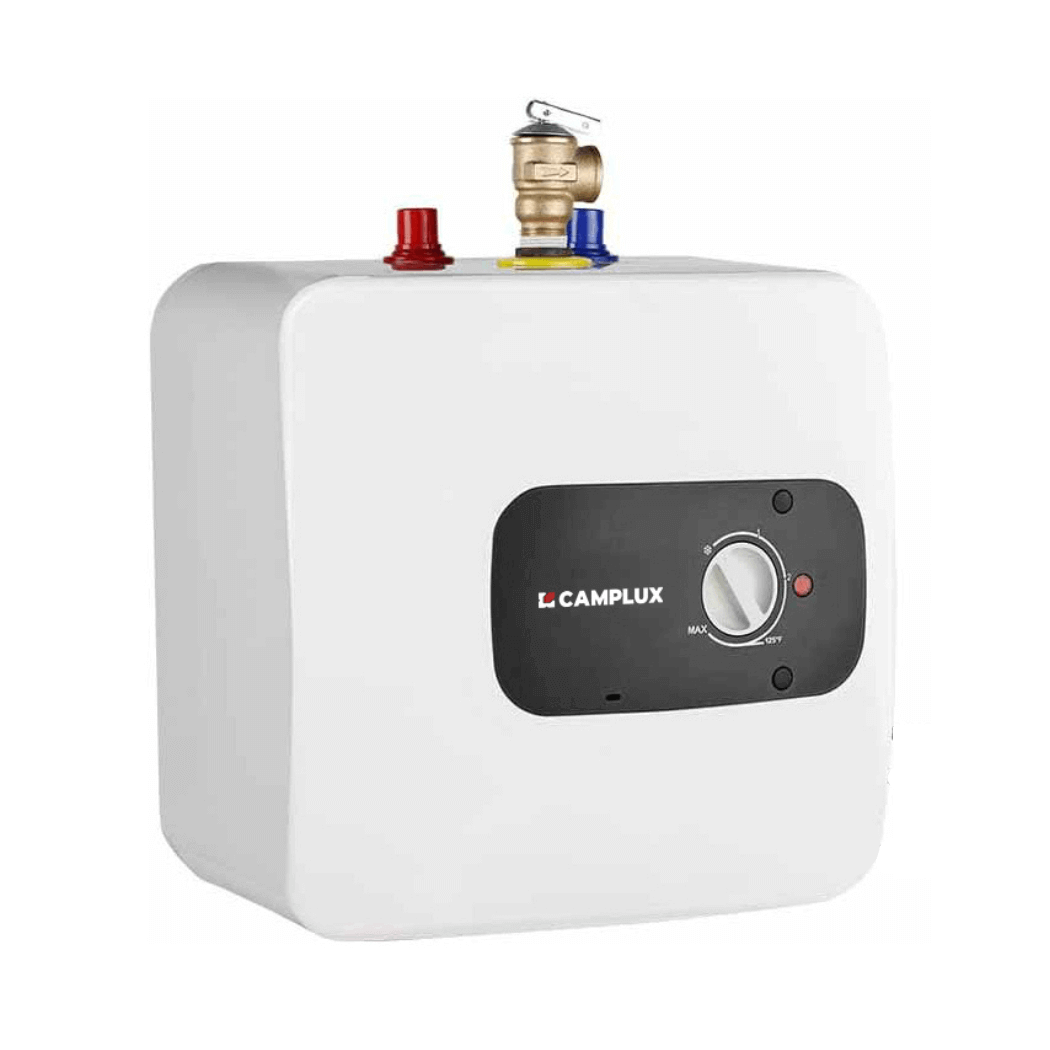
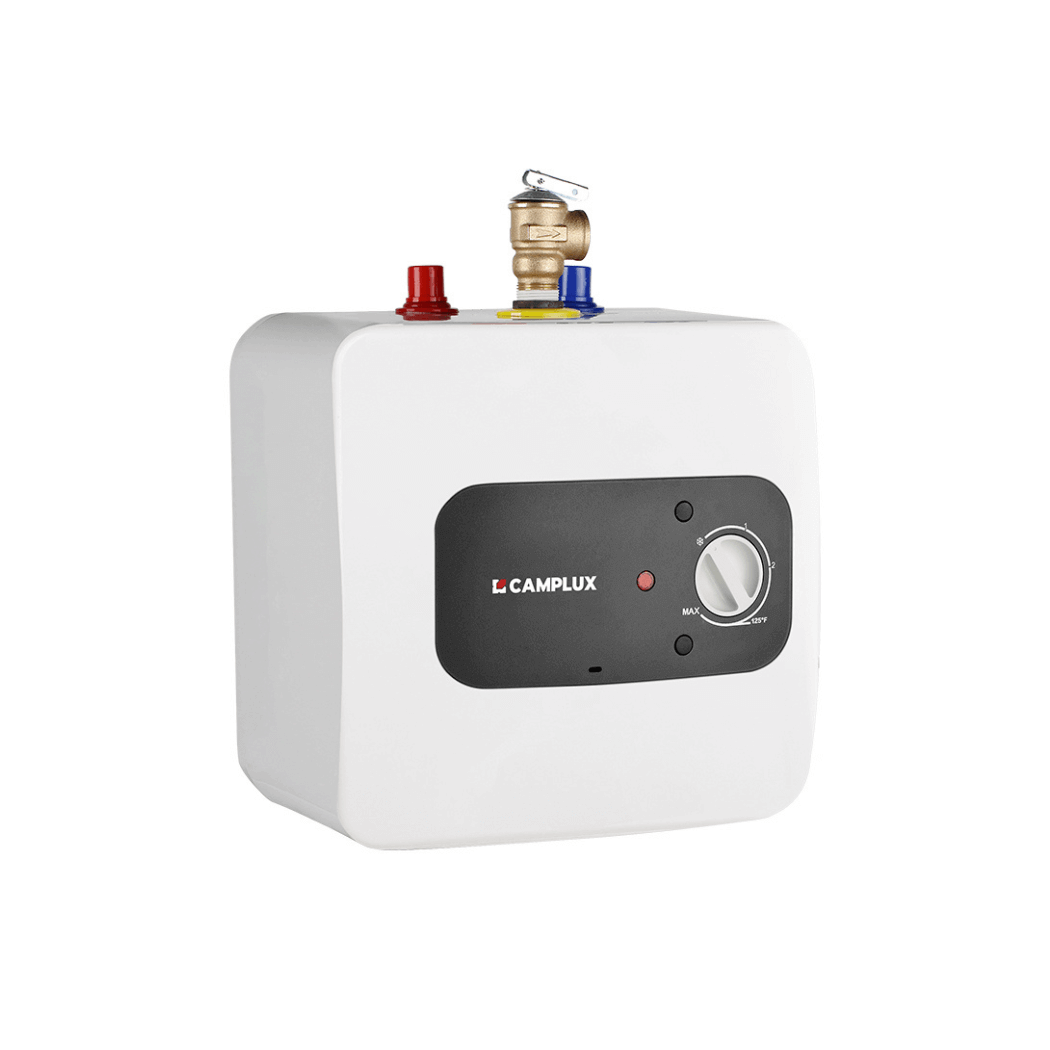
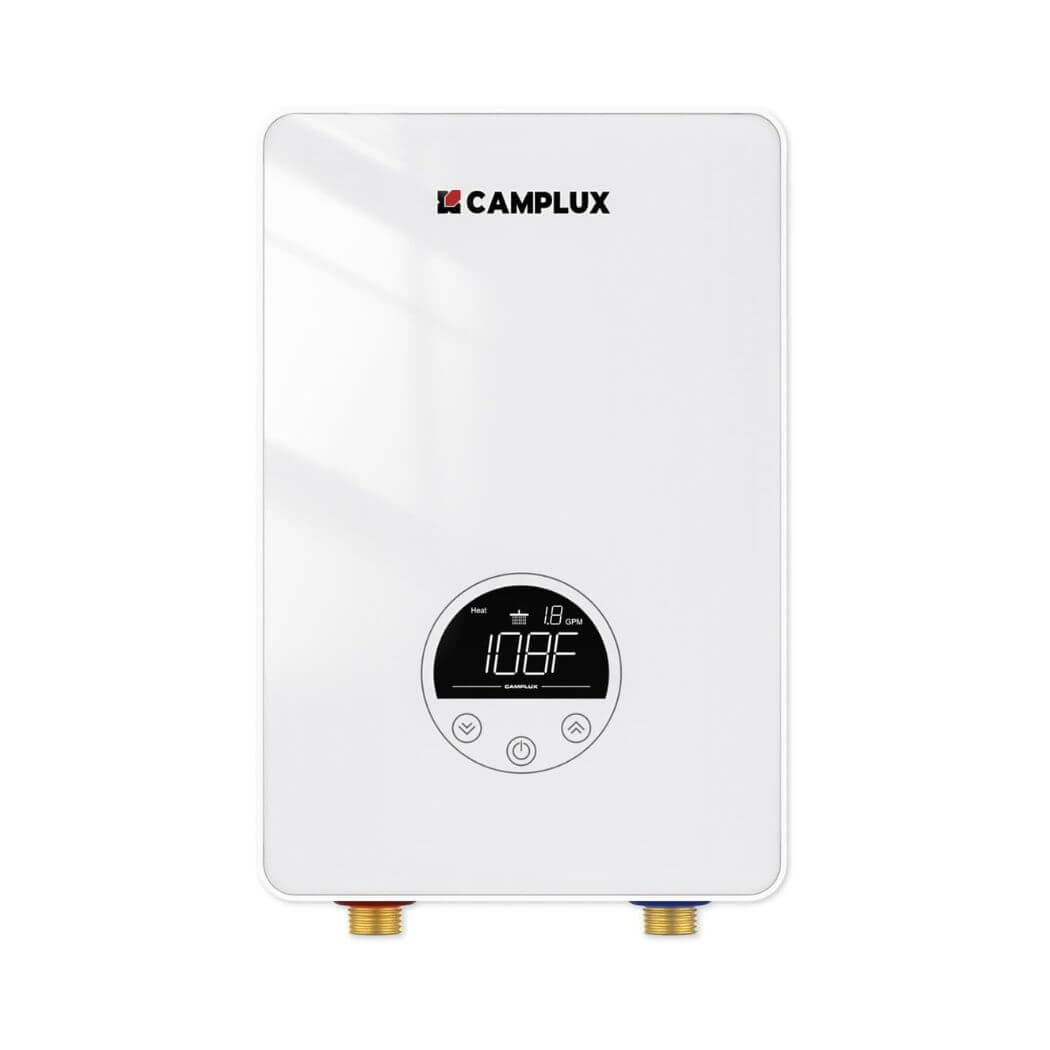
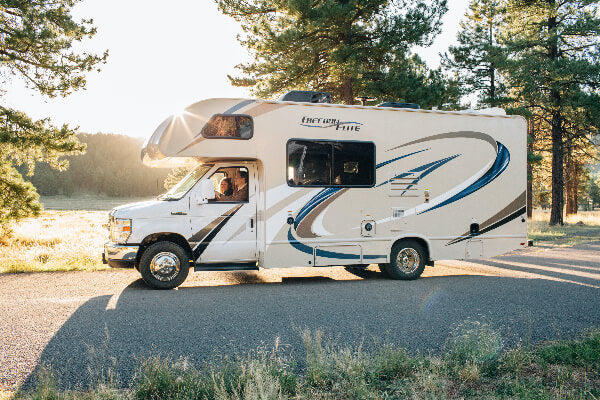
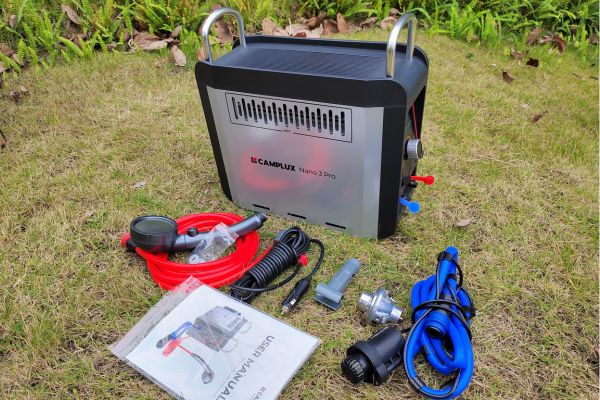
1 comment
linda burger
which model do you have that i can use to heat a hot tub. I bought CAMPLUX First Portable Propane Water Heater – Outdoor Camping Shower Heater with 34, 000 BTU High-Power, 1.32 GPM and it will not stay on
which model do you have that i can use to heat a hot tub. I bought CAMPLUX First Portable Propane Water Heater – Outdoor Camping Shower Heater with 34, 000 BTU High-Power, 1.32 GPM and it will not stay on